
|
|
|||||||||||||
|
Ostatnie 10 torrentów
Ostatnie 10 komentarzy
Discord
Wygląd torrentów:
Kategoria:
Muzyka
Gatunek:
Progressive Metal
Ilość torrentów:
13
Opis
...SIŁA I PIĘKNO MUZYKI TKWIĄ W JEJ RÓŻNORODNOŚCI...
..::OPIS::.. Nie ukrywam, że głównym powodem powstania tej recenzji jest pierwsza wizyta formacji w naszym kraju. Vola bowiem już za kilka dni zagra w naszym kraju dwa koncerty poprzedzając występy szwedzkiej Katatonii. To stosunkowo młoda, pochodząca z Kopenhagi, duńska formacja, która w 2011 roku wydała EP-kę Monsters. Recenzowany tu ubiegłoroczny Inmazes jest ich pełnowymiarowym debiutem. 16 września tego roku album otrzymał drugie życie - ukazał się ponownie, tym razem nakładem Mascot Records. Dosyć intrygująca nazwa grupy, którą tworzy dziś czterech muzyków (gitarzysta i wokalista Asger Mygind, klawiszowiec Martin Werner, basista Nicolai Mogensen i bębniarz Felix Ewert) pochodzi ponoć z języka włoskiego. Tyle podstawowych informacji, czas na muzykę. Muzyka, która najprościej mówiąc wpisuje grupę w modną ostatnio djentową szufladę, ma jednak bardzo wyróżniające ją subtelności. Zresztą, charakteryzując ich dźwięki można doprawdy sporo stylistycznych łatek im przykleić a to już dobrze świadczy o ich muzycznych poszukiwaniach. No bo z jednej strony dominują na płycie tak specyficzne djentowe, chłoszczące riffy wydobywane z nisko strojonych gitar, do tego podbijane masywnym, głębokim basem. Są też nietypowe struktury rytmiczne i zróżnicowana dynamika wpisująca ich w math metalowe klimaty. Z drugiej jednak strony odgrywające u nich ogromną rolę instrumenty klawiszowe czynią ich rock bardziej przestrzennym i atmosferycznym. Tym samym sporo w tym wszystkim rockowej progresji. A żeby było jeszcze ciekawiej, kwartet stawia na absolutnie miażdżącą i nośną melodykę zahaczającą momentami o popową stylistykę. Praktycznie wszystkie refreny mają świetne harmonie. Jak zatem nietrudno wywnioskować, ich pomysł na granie opiera się na silnym kontraście i łączeniu z pozoru zupełnie różnych biegunów. I tak znajdzie tu sporo dla siebie miłośnik Meshuggah, Periphery, TesseracT, czy bardziej progresywnych składów takich jak Karnivool i Leprous. Z kolei wokalne, melodyjne rozwiązania mogą przywołać… Tears For Fears bądź Coheed and Cambria (mój przesympatyczny muzyczny druh usłyszał tu nawet inspirację… A-ha). To album bardzo równy i przy okazji dobrze ułożony. Rozpoczęty atrakcyjnymi killerami w postaci The Same War, Stray The Skies (!!) i pachnącym zwrotem ku latom 80-tym Starburn, zwalniający nieco w środku zgrabną balladką Emily i zwieńczony Inmazes, tytułową, prawie 8 – minutową kompozycją z karmazynowym wstępem i postmetalowym oraz trochę alternatywno-rockowym finałem, mającym wszakże nutkę swoistej nostalgii. Cóż, jak na tak ciężki kaliber, to wyjątkowo przebojowe granie. Mariusz Danielak Czytając o debiutanckim albumie grupy VOLA, można natknąć się na wiele obietnic, że muzyka zespołu brzmi jak coś zupełnie nowego, czego nie da się porównać z innym zespołem. To bardzo ciekawe, bo ogromna część materiału zawartego na „Inmazes” kojarzy mi się z australijskimi prog metalowcami z Voyager. Słyszę tu to samo uwielbienie dla ciepłych klawiszowych teł i wpadających w ucho, niemal popowych, melodii. Voyager jest jednak dość oryginalnym tworem, więc nie jest to zarzut. Poza tym Duńczycy oferują mnóstwo rwanych riffów z djentowej szkoły. Porządny ładunek energetyczny i ciężar zapewnia 7-strunowa gitara i wyrazista sekcja rytmiczna, która wprawi w drgania nawet ściany. Zespół jednak nie samym łojeniem żyje i w takim Emily potrafi mocno zwolnić i oddać się ulotności. Z kolei w Your Mind Is A Helpless Dreamer możemy usłyszeć rewelacyjne elektroniczne przejście, które nawiązuję do dubstepu, ale tak dobrze brzmiącego tego gatunku od dawna nie słyszałem. Ciekawie wzbogaca to ten i tak już bardzo ciekawy utwór. „Inmazes” to zdecydowanie interesujący debiut, który wyróżnia się zapamiętywalnymi melodiami, mocnym brzmieniem i klawiszowym przepychem. Jest na krążku dość duszno i klaustrofobicznie, ale zespół twierdzi, że taki właśnie był zamysł. „Inmazes” dotyka tematu uwięzienia w mentalnych labiryntach i nieumiejętności doznania pełni szczęścia. Muzyka przemyca jednak odpowiednią dawkę światła, by zapewnić tak bardzo potrzebny słuchaczowi balans. Dawid Zielonka ..::TRACK-LIST::.. 1. The Same War 05:10 2. Stray The Skies 04:13 3. Starburn 06:05 4. Owls 05:51 5. Your Mind Is A Helpless Dreamer 05:21 6. Emily 03:01 7. Gutter Moon 03:55 8. A Stare Without Eyes 04:58 9. Feed The Creatures 05:37 10. Inmazes 07:29 ..::OBSADA::.. Asger Mygind - lead vocals, guitars Martin Werner - keyboards Nicolai Mogensen - bass Felix Ewert - drums https://www.youtube.com/watch?v=Qrc9BWbuaUo SEED 15:00-22:00. POLECAM!!! 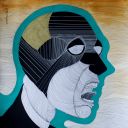
Seedów: 0
Komentarze: 0
Data dodania:
2026-02-01 11:14:45
Rozmiar: 123.40 MB
Peerów: 0
Dodał: Fallen_Angel
Opis
...SIŁA I PIĘKNO MUZYKI TKWIĄ W JEJ RÓŻNORODNOŚCI...
..::OPIS::.. Nie ukrywam, że głównym powodem powstania tej recenzji jest pierwsza wizyta formacji w naszym kraju. Vola bowiem już za kilka dni zagra w naszym kraju dwa koncerty poprzedzając występy szwedzkiej Katatonii. To stosunkowo młoda, pochodząca z Kopenhagi, duńska formacja, która w 2011 roku wydała EP-kę Monsters. Recenzowany tu ubiegłoroczny Inmazes jest ich pełnowymiarowym debiutem. 16 września tego roku album otrzymał drugie życie - ukazał się ponownie, tym razem nakładem Mascot Records. Dosyć intrygująca nazwa grupy, którą tworzy dziś czterech muzyków (gitarzysta i wokalista Asger Mygind, klawiszowiec Martin Werner, basista Nicolai Mogensen i bębniarz Felix Ewert) pochodzi ponoć z języka włoskiego. Tyle podstawowych informacji, czas na muzykę. Muzyka, która najprościej mówiąc wpisuje grupę w modną ostatnio djentową szufladę, ma jednak bardzo wyróżniające ją subtelności. Zresztą, charakteryzując ich dźwięki można doprawdy sporo stylistycznych łatek im przykleić a to już dobrze świadczy o ich muzycznych poszukiwaniach. No bo z jednej strony dominują na płycie tak specyficzne djentowe, chłoszczące riffy wydobywane z nisko strojonych gitar, do tego podbijane masywnym, głębokim basem. Są też nietypowe struktury rytmiczne i zróżnicowana dynamika wpisująca ich w math metalowe klimaty. Z drugiej jednak strony odgrywające u nich ogromną rolę instrumenty klawiszowe czynią ich rock bardziej przestrzennym i atmosferycznym. Tym samym sporo w tym wszystkim rockowej progresji. A żeby było jeszcze ciekawiej, kwartet stawia na absolutnie miażdżącą i nośną melodykę zahaczającą momentami o popową stylistykę. Praktycznie wszystkie refreny mają świetne harmonie. Jak zatem nietrudno wywnioskować, ich pomysł na granie opiera się na silnym kontraście i łączeniu z pozoru zupełnie różnych biegunów. I tak znajdzie tu sporo dla siebie miłośnik Meshuggah, Periphery, TesseracT, czy bardziej progresywnych składów takich jak Karnivool i Leprous. Z kolei wokalne, melodyjne rozwiązania mogą przywołać… Tears For Fears bądź Coheed and Cambria (mój przesympatyczny muzyczny druh usłyszał tu nawet inspirację… A-ha). To album bardzo równy i przy okazji dobrze ułożony. Rozpoczęty atrakcyjnymi killerami w postaci The Same War, Stray The Skies (!!) i pachnącym zwrotem ku latom 80-tym Starburn, zwalniający nieco w środku zgrabną balladką Emily i zwieńczony Inmazes, tytułową, prawie 8 – minutową kompozycją z karmazynowym wstępem i postmetalowym oraz trochę alternatywno-rockowym finałem, mającym wszakże nutkę swoistej nostalgii. Cóż, jak na tak ciężki kaliber, to wyjątkowo przebojowe granie. Mariusz Danielak Czytając o debiutanckim albumie grupy VOLA, można natknąć się na wiele obietnic, że muzyka zespołu brzmi jak coś zupełnie nowego, czego nie da się porównać z innym zespołem. To bardzo ciekawe, bo ogromna część materiału zawartego na „Inmazes” kojarzy mi się z australijskimi prog metalowcami z Voyager. Słyszę tu to samo uwielbienie dla ciepłych klawiszowych teł i wpadających w ucho, niemal popowych, melodii. Voyager jest jednak dość oryginalnym tworem, więc nie jest to zarzut. Poza tym Duńczycy oferują mnóstwo rwanych riffów z djentowej szkoły. Porządny ładunek energetyczny i ciężar zapewnia 7-strunowa gitara i wyrazista sekcja rytmiczna, która wprawi w drgania nawet ściany. Zespół jednak nie samym łojeniem żyje i w takim Emily potrafi mocno zwolnić i oddać się ulotności. Z kolei w Your Mind Is A Helpless Dreamer możemy usłyszeć rewelacyjne elektroniczne przejście, które nawiązuję do dubstepu, ale tak dobrze brzmiącego tego gatunku od dawna nie słyszałem. Ciekawie wzbogaca to ten i tak już bardzo ciekawy utwór. „Inmazes” to zdecydowanie interesujący debiut, który wyróżnia się zapamiętywalnymi melodiami, mocnym brzmieniem i klawiszowym przepychem. Jest na krążku dość duszno i klaustrofobicznie, ale zespół twierdzi, że taki właśnie był zamysł. „Inmazes” dotyka tematu uwięzienia w mentalnych labiryntach i nieumiejętności doznania pełni szczęścia. Muzyka przemyca jednak odpowiednią dawkę światła, by zapewnić tak bardzo potrzebny słuchaczowi balans. Dawid Zielonka ..::TRACK-LIST::.. 1. The Same War 05:10 2. Stray The Skies 04:13 3. Starburn 06:05 4. Owls 05:51 5. Your Mind Is A Helpless Dreamer 05:21 6. Emily 03:01 7. Gutter Moon 03:55 8. A Stare Without Eyes 04:58 9. Feed The Creatures 05:37 10. Inmazes 07:29 ..::OBSADA::.. Asger Mygind - lead vocals, guitars Martin Werner - keyboards Nicolai Mogensen - bass Felix Ewert - drums https://www.youtube.com/watch?v=Qrc9BWbuaUo SEED 15:00-22:00. POLECAM!!! 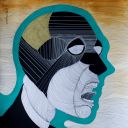
Seedów: 0
Komentarze: 0
Data dodania:
2026-02-01 11:10:14
Rozmiar: 374.60 MB
Peerów: 0
Dodał: Fallen_Angel
Opis
...SIŁA I PIĘKNO MUZYKI TKWIĄ W JEJ RÓŻNORODNOŚCI...
..::OPIS::.. Od pierwszej do ostatniej minuty słucha się tego dzieła z zapartym tchem... Już pierwsze dźwięki instrumentalnego wstępu „Apparition” porywają nas w świat włoskiej prowincji XVw., oczyma wyobraźni widzimy zielone winnice, a zmysłami czujemy śródziemnomorską bryzę i żar lejący się z błękitnego nieba. Przepiękny to wstęp do opowieści o życiu Leonardo daVinci, pełna orkiestralnego rozmachu dźwiękowa ilustracja klimatu całej historii. To swoiste intro przechodzi w kolejny, tym razem króciutki fragment instrumentalny „Aria For Italy” i za moment rozlega się Głos. Wspaniały, rewelacyjny Głos odtwórcy tytułowej roli tej płytowej rock opery. To James LaBrie, który wzniósł się na tym albumie na wyżyny rockowej wokalistyki. Ale oprócz niego śpiewają tu także inni wielcy artyści. Rewelacyjny jest duet Josh Pincus – Davey Pattison w „Reins of Tuscan”, tuż potem następuje „Mona Lisa”, która brzmi niczym „Bohemian Rhapsody” grupy Queen. Kolejny fragment „Apprentice” z mrocznymi, przepuszczonymi przez wokoder głosami chóru uczniów brzmi z kolei jak klasyczny numer metalowy. No i w tym momencie następują po sobie trzy utwory stanowiące fenomenalny punkt kulminacyjny całego albumu. Akustyczne dźwięki gitary i duet Steve Walsh – Michelle Young w „First Communion”. Nagranie to do złudzenia przypomina balladę „Dust In The Wind” grupy Kansas. Po nim mamy uroczą instrumentalną miniaturkę „Mother Of God”, po której słyszymy kolejne arcydzieło: „This Time, This Way”. Tym razem to duet James LaBrie – Lisa Bouchelle, który czyni z tego utworu prawdziwą muzyczną perłę nad perłami. W jego instrumentalnej części słyszymy porywającą partię instrumentów dętych. Od razu wiadomo, że kompozytor całości Trent Gardner zakochany jest w stylistyce grupy Chicago. W pierwszej części kolejnego nagrania „Inventions” dzięki wokalowi Walsha na myśl znowu przychodzi brzmienie grupy Kansas, lecz zaraz potem Chris Shryack, Trent Gardner i James LaBrie przeistaczają ten utwór w ostrą, metalową kompozycję. Chwilę potem , w balladzie „Shaping The Invisible” wspaniały wokal LaBrie przenosi nas w obszary znane z dokonań Dream Theater. No i zbliżamy się już do finału płyty. Podniosły temat „Introducing Francois I” i nagranie „Heart Of France” opisują schyłek życia Leonardo we Francji. Słyszymy tu doskonały wokalny dialog pomiędzy Bretem Douglasem, Robertem Berry, Mikiem Bakerem i Jamesem LaBrie. Po nim już tylko dramatyczna chwila śmierci głównego bohatera i genialny operowy finał „End Of A World”. Od pierwszej do ostatniej minuty słucha się tego dzieła z zapartym tchem... Artur Chachlowski Trent Gardner to muzyk kojarzony przede wszystkim z zespołem Magellan. Albumy, które wychodzą spod jego ręki rzadko zdobywają sobie rozgłos - nawet jeśli gościnnie występują na nich panowie z Dream Theater. Jego kompozycje są specyficzne, eksperymentalne, wymagające dla słuchacza. Muzykę Amerykanina chciałbym przybliżyć prezentując jego największe osiągnięcie, concept album traktujący o życiu Leonarda da Vinci. Do odegrania całej historii Gardner postanowił użyć kilku wokalistów, jako czołowego artystę renesansu obsadzając samego Jamesa LaBrie. W tym miejscu chcę wyrazić zachwyt dla wokalisty Dream Theater - "Scenes from a memory", "The human equation", "Leonardo - the absolute man" - wszędzie odegrał główną rolę i spisał się przy tym znakomicie. Nie znaczy to, że zdominował on całą płytę - nie gorzej od niego spisuje się Lisa Bouchelle, która zachwyca swą ciepłą, głęboką barwą głosu. Słuchając albumu Gardnera można poczuć się trochę jak na dobrym musicalu. Prym wiodą przede wszystkim wokale, kroku dotrzymują im klawisze. Gitary odzywają się rzadko, ale gdy już dają o sobie znać, to z pełną mocą. Niejednokrotnie zostały użyte instrumenty dęte, takie jak trąbka czy puzon. Często pojawiają się też chórki, słychać tu wyraźną inspirację Queen. Z tak bogatym zestawem przeniesienie się w czasy renesansu nie stanowi dla słuchacza najmniejszego problemu. Aranżacje nie sprawiają przy tym wrażenia przeładowanych, nie ma przerostu formy nad treścią. Melodie ułożone przez Gardnera są świetnie pomyślane, dopieszczone w najmniejszym szczególe. Niech za przykład posłuży balladowa "Mona Lisa" - po wstępie w wykonaniu Jamesa LaBrie do samego końca jesteśmy bombardowani taką różnorodnością wokali, że może zakręcić się w głowie. A przecież to tylko niewielka część całości. Weźmy chociażby taki zakręcony, progmetalowy "Apprentice", z niesamowitą wiodącą partią klawiszy. Albo "This Time, This Way" - najbardziej przebojowy utwór na płycie, co nie oznacza w żadnym wypadku muzyki mdłej i ckliwej. Gardner dał tu z siebie wszystko, perfekcyjnie dobrał też wokalistów. Duet LaBrie/Bouchelle wytworzył niesamowity ładunek emocjonalny, stłoczony na tych sześciu zaledwie minutach. Szkoda, że tylko tyle - śpiewają jakby robili to razem od zawsze. Wybrałem utwory różniące się między sobą, a zarazem najbardziej reprezentatywne. Album broni się jednak przede wszystkim jako całość - nie ma tu kawałków słabych, nietrafionych. Ci, którzy szukają czegoś oryginalnego, innego od tego co słyszeli do tej pory, z pewnością nie będą zawiedzeni. Gardner zawsze bowiem chodził własnymi ścieżkami, które tym razem zaprowadziły go do stworzenia arcydzieła. Eddiash Trent Gardner wpadł na wspaniały pomysł, aby muzyką opisać życie Leonarda da Vinci. Swój jakże ambitny plan zrealizował z pomocą kilkunastu muzyków i chóru. Tytułową rolę powierzył Jamesowi LaBrie, doskonale znanemu z Dream Theater i choćby z Mullmuzzler. I co by tu nie mówić, wybór ten okazał się strzałem w dziesiątkę. Bo to właśnie LaBrie nadał tej płycie nowego wymiaru. Łatwość z jaką operuje on swoim głosem może budzić tylko podziw. Zresztą wokale zostały potraktowane na tym albumie priorytetowo. Wystarczy wspomnieć, że ich partie podzielone są pomiędzy kilkoro muzyków. Album sprawia wrażenie bardzo przemyślanego konceptu, trochę takiej rock opery w starym stylu, ale z nowoczesnymi aranżacjami i rozmachem godnym pozazdroszczenia. Nie rażą tu progresywne patenty, pinkfloydowskie elementy czy postqueenowe chórki ("Mona Lisa"). Całość wypada perfekcyjnie, bardzo melodyjnie, ale i bogato, a przede wszystkim pomysłowo. Doskonale zmienia się nastrój, nawet w obrębie jednej kompozycji, czego najlepszym przykładem niech będzie "Reins Of Tuscan". Jest jednak na "Leonardo" utwór-diament. "This Time, This Way" to kompozycja fantastyczna, która jest ozdobą tej płyty, tym, czym było "Stairway To Heaven" dla Led Zeppelin i "Perfect Stangers" dla Deep Purple. Lisa Bouchelle i James LaBrie nadali temu utworowi witalności, żaru i po prostu piękna. Ich wokalny duet w "This Time..." to dla mnie punkt kulminacyjny albumu "Leonardo - The Absolute Man". Muzyka na całej płycie jest tłem do rozgrywającej się historii życia ikony renesansu. Raz kipi mocą progresywnego metalu, innym razem łagodnie opiewa piękno Półwyspu Apenińskiego. Dla wszystkich ceniących ambitny rock ta płyta to muzyczne wyzwanie, gdzie perfekcjonizm treści łączy się z doskonałością formy. Płyta roku? Marcin Ratyński "Leonardo - The Absolute Man" is a very personal project of Gardner's brothers, who created the musical project Magellan, and where all music and lyrics were composed by the creative Magellan's man, Trent Gardner. If you're familiar with the music of Magellan, you will know that Trent Gardner's compositions are not of the usual chorus and verse type of songs, but complex epics, with developing melodies and reoccurring themes. Their music is quite heavy and usually takes some time to grow on you. The same goes for this new project of both Gardner's brothers. This project is about the life of one of the greatest figures of the Renaissance period and one of the greatest men of all time, Leonardo da Vinci. This project represents a personal point of view and a tribute of Gardner's brothers to him. As we all know, Leonardo was an Italian polymath man, who studied a significant number of different subject areas such as painting, sculpture, architecture, music, science, mathematics, engineering, anatomy, geology, cartography, botanic and writing. Leonardo has often been described as the archetype of the Renaissance man. He is also considered to be one of the greatest painters of all times, and perhaps he also can be the most diversely talented person that ever has lived. I completely agree with Trent Gardner's idea that life is unfair because some have everything and others have nothing. But for Leonard's happiness, we can say that, in life, Leonardo had almost everything we can get from life. "Leonardo - The Absolute Man" is a conceptual album with the format of a rock opera performed by a great constellation of progressive rock singers. The cast of the singers is very extensive and corresponds to figures who took part in the life of Leonardo. So we have in this musical project: James Labrie (Dream Theater) is Leonardo da Vinci. Davey Pattison is Ser Piero da Vinci, the father of Leonardo. Michelle Young (Glass Hammer) is Caterina, the mother of Leonardo. Lisa Bouchelle (Mastermind) is Mona Lisa, the subject of Leonardo's favourite painting. Mike Baker (Shadow Gallery) is Giovan Francesco Melzi, a personal friend, companion and apprentice of Leonardo. Chris Shyrack (Under The Sun) is Ludovico il Moro Sforza, one of the powerful princes of the Renaissance in Italy. Bret Douglas (Cairo) is François I the King of France. Josh Pincus (Ice Age) is Lorenzo de Medici, the man who ruled Florence. Steve Walsh (Kansas) is Bartolemeu Calco, the advisor of Sforza. Trent Gardner (Magellan) is Andrea del Verrocchio, the master of Leonardo. Robert Berry (Three) is Salai, the protégé and also the "adopted son" of Leonardo. Beyond the singers, we also have the musicians. But when we look at the musicians we realize that Gardner's "Magellan" Bros, Trent and Wayne, are who really conduct the whole work. So, the line up of the musicians on this album is Trent Gardner (keyboards and trombone), Wayne Gardner (guitar), Patrick Reyes (guitar), Steve Reyes (bass), Jeremy Colson (drums), Luis Maldonado (guitar and bass) and Joe Franco (drums and orchestral percussion). "Leonardo - The Absolute Man" has eighteen tracks. Of all, there are ten vocal tracks and eight instrumental tracks. The structure of the work is like a rock opera. The characters sing depending on their roles and the music accompanies without too much protagonism. And I'm surprised to see Gardner´s great sense of the composition structuring different intensities depending on the moment. But mainly this album has lots of melody. Vocally, this is a stupendous project, and all the participants really shine in their solo spots. Sections that feature Labrie and Pincus together, and Walsh, Shryack, Baker and Douglas, are quite good. The Magellan stamp is always present, especially in the chorus sections, where the Gardner vocals are full force. The women of the group, Young and Bouchelle, also turn in fine performances as well. Musically, there are some neat keyboard passages, very orchestral sounding, and some heavy guitar riffs here and there, but this is mainly about the vocals and the story behind it. I'm sure it must have taken Trent Gardner a while to put this all together and find the right singers to fill each part, but the end result is quite polished and enjoyable. Conclusion: First, a word about Magellan and Gardner's brothers. I'm a big fan of Magellan. Magellan represents the second wave of American progressive rock music. About Gardner's brothers I've always respected and admired them. Their great fascination for the great values of culture was once more proven with this work. They had already done it with the choice of the name Magellan. Ferdinand Magellan (Fernão de Magalhâes in Portuguese), was the name of a Portuguese navigator. He was the first man to complete the first circumnavigation around the world. As unfortunately the brothers are no more within us, here is my homage and tribute to them. "Leonardo - The Absolute Man", is an ambitious project where the concept works very well. It has great music and lyrics and is a very well balanced and modern work. The choice of the singers was very good and they made a perfect rock opera. The complex compositions and arrangements may take some time to get into, but at least you won't get bored. This is an album not to be missed. Prog is my Ferrari. Jem Godfrey (Frost*) VianaProghead ..::TRACK-LIST::.. 1. Apparition (5:42) 2. Aria for Italy (0:49) 3. With Father (1:48) 4. Reins of Tuscan (5:49) 5. Reproach (1:11) 6. Mona Lisa (7:11) 7. Il Divino (3:22) 8. Inundation (1:07) 9. Apprentice (6:56) 10. First Commission (3:47) 11. Mother of God (1:06) 12. This Time, This Way (6:05) 13. Inventions (5:13) 14. Shaping the Invisible (4:54) 15. Introduction to Francois 1 (1:20) 16. Heart of France (5:57) 17. Sacrament (1:11) ..::OBSADA::.. Wayne Gardner - guitar Patrick Reyes - guitar Trent Gardner - keyboards, trombone, vocals (6,9,13,18), composer & producer Steve Reyes - bass Jeremy Colson - drums With: James LaBrie - vocals (3,4,6,9,12-14,16,18) Davey Pattison - vocals (3,4,6,18) Michelle Young - vocals (4,6,9,10,18) Josh Pincus - vocals (4,18) Lisa Bouchelle - vocals (12,18) Mike Baker - vocals (6,9,16,18) Robert Berry - vocals (9,16,18) Steve Walsh - vocals (10,13,18) Chris Shryack - vocals (13,18) Bret Douglas - vocals (16,18) Luis Maldonaldo - guitar & bass (12) Joe Franco - drums & orchestral percussion (1,12) https://www.youtube.com/watch?v=0iktyqOjMHk SEED 15:00-22:00. POLECAM!!! 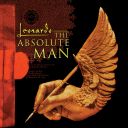
Seedów: 0
Komentarze: 0
Data dodania:
2026-01-23 17:33:59
Rozmiar: 159.28 MB
Peerów: 0
Dodał: Fallen_Angel
Opis
...SIŁA I PIĘKNO MUZYKI TKWIĄ W JEJ RÓŻNORODNOŚCI...
..::OPIS::.. Od pierwszej do ostatniej minuty słucha się tego dzieła z zapartym tchem... Już pierwsze dźwięki instrumentalnego wstępu „Apparition” porywają nas w świat włoskiej prowincji XVw., oczyma wyobraźni widzimy zielone winnice, a zmysłami czujemy śródziemnomorską bryzę i żar lejący się z błękitnego nieba. Przepiękny to wstęp do opowieści o życiu Leonardo daVinci, pełna orkiestralnego rozmachu dźwiękowa ilustracja klimatu całej historii. To swoiste intro przechodzi w kolejny, tym razem króciutki fragment instrumentalny „Aria For Italy” i za moment rozlega się Głos. Wspaniały, rewelacyjny Głos odtwórcy tytułowej roli tej płytowej rock opery. To James LaBrie, który wzniósł się na tym albumie na wyżyny rockowej wokalistyki. Ale oprócz niego śpiewają tu także inni wielcy artyści. Rewelacyjny jest duet Josh Pincus – Davey Pattison w „Reins of Tuscan”, tuż potem następuje „Mona Lisa”, która brzmi niczym „Bohemian Rhapsody” grupy Queen. Kolejny fragment „Apprentice” z mrocznymi, przepuszczonymi przez wokoder głosami chóru uczniów brzmi z kolei jak klasyczny numer metalowy. No i w tym momencie następują po sobie trzy utwory stanowiące fenomenalny punkt kulminacyjny całego albumu. Akustyczne dźwięki gitary i duet Steve Walsh – Michelle Young w „First Communion”. Nagranie to do złudzenia przypomina balladę „Dust In The Wind” grupy Kansas. Po nim mamy uroczą instrumentalną miniaturkę „Mother Of God”, po której słyszymy kolejne arcydzieło: „This Time, This Way”. Tym razem to duet James LaBrie – Lisa Bouchelle, który czyni z tego utworu prawdziwą muzyczną perłę nad perłami. W jego instrumentalnej części słyszymy porywającą partię instrumentów dętych. Od razu wiadomo, że kompozytor całości Trent Gardner zakochany jest w stylistyce grupy Chicago. W pierwszej części kolejnego nagrania „Inventions” dzięki wokalowi Walsha na myśl znowu przychodzi brzmienie grupy Kansas, lecz zaraz potem Chris Shryack, Trent Gardner i James LaBrie przeistaczają ten utwór w ostrą, metalową kompozycję. Chwilę potem , w balladzie „Shaping The Invisible” wspaniały wokal LaBrie przenosi nas w obszary znane z dokonań Dream Theater. No i zbliżamy się już do finału płyty. Podniosły temat „Introducing Francois I” i nagranie „Heart Of France” opisują schyłek życia Leonardo we Francji. Słyszymy tu doskonały wokalny dialog pomiędzy Bretem Douglasem, Robertem Berry, Mikiem Bakerem i Jamesem LaBrie. Po nim już tylko dramatyczna chwila śmierci głównego bohatera i genialny operowy finał „End Of A World”. Od pierwszej do ostatniej minuty słucha się tego dzieła z zapartym tchem... Artur Chachlowski Trent Gardner to muzyk kojarzony przede wszystkim z zespołem Magellan. Albumy, które wychodzą spod jego ręki rzadko zdobywają sobie rozgłos - nawet jeśli gościnnie występują na nich panowie z Dream Theater. Jego kompozycje są specyficzne, eksperymentalne, wymagające dla słuchacza. Muzykę Amerykanina chciałbym przybliżyć prezentując jego największe osiągnięcie, concept album traktujący o życiu Leonarda da Vinci. Do odegrania całej historii Gardner postanowił użyć kilku wokalistów, jako czołowego artystę renesansu obsadzając samego Jamesa LaBrie. W tym miejscu chcę wyrazić zachwyt dla wokalisty Dream Theater - "Scenes from a memory", "The human equation", "Leonardo - the absolute man" - wszędzie odegrał główną rolę i spisał się przy tym znakomicie. Nie znaczy to, że zdominował on całą płytę - nie gorzej od niego spisuje się Lisa Bouchelle, która zachwyca swą ciepłą, głęboką barwą głosu. Słuchając albumu Gardnera można poczuć się trochę jak na dobrym musicalu. Prym wiodą przede wszystkim wokale, kroku dotrzymują im klawisze. Gitary odzywają się rzadko, ale gdy już dają o sobie znać, to z pełną mocą. Niejednokrotnie zostały użyte instrumenty dęte, takie jak trąbka czy puzon. Często pojawiają się też chórki, słychać tu wyraźną inspirację Queen. Z tak bogatym zestawem przeniesienie się w czasy renesansu nie stanowi dla słuchacza najmniejszego problemu. Aranżacje nie sprawiają przy tym wrażenia przeładowanych, nie ma przerostu formy nad treścią. Melodie ułożone przez Gardnera są świetnie pomyślane, dopieszczone w najmniejszym szczególe. Niech za przykład posłuży balladowa "Mona Lisa" - po wstępie w wykonaniu Jamesa LaBrie do samego końca jesteśmy bombardowani taką różnorodnością wokali, że może zakręcić się w głowie. A przecież to tylko niewielka część całości. Weźmy chociażby taki zakręcony, progmetalowy "Apprentice", z niesamowitą wiodącą partią klawiszy. Albo "This Time, This Way" - najbardziej przebojowy utwór na płycie, co nie oznacza w żadnym wypadku muzyki mdłej i ckliwej. Gardner dał tu z siebie wszystko, perfekcyjnie dobrał też wokalistów. Duet LaBrie/Bouchelle wytworzył niesamowity ładunek emocjonalny, stłoczony na tych sześciu zaledwie minutach. Szkoda, że tylko tyle - śpiewają jakby robili to razem od zawsze. Wybrałem utwory różniące się między sobą, a zarazem najbardziej reprezentatywne. Album broni się jednak przede wszystkim jako całość - nie ma tu kawałków słabych, nietrafionych. Ci, którzy szukają czegoś oryginalnego, innego od tego co słyszeli do tej pory, z pewnością nie będą zawiedzeni. Gardner zawsze bowiem chodził własnymi ścieżkami, które tym razem zaprowadziły go do stworzenia arcydzieła. Eddiash Trent Gardner wpadł na wspaniały pomysł, aby muzyką opisać życie Leonarda da Vinci. Swój jakże ambitny plan zrealizował z pomocą kilkunastu muzyków i chóru. Tytułową rolę powierzył Jamesowi LaBrie, doskonale znanemu z Dream Theater i choćby z Mullmuzzler. I co by tu nie mówić, wybór ten okazał się strzałem w dziesiątkę. Bo to właśnie LaBrie nadał tej płycie nowego wymiaru. Łatwość z jaką operuje on swoim głosem może budzić tylko podziw. Zresztą wokale zostały potraktowane na tym albumie priorytetowo. Wystarczy wspomnieć, że ich partie podzielone są pomiędzy kilkoro muzyków. Album sprawia wrażenie bardzo przemyślanego konceptu, trochę takiej rock opery w starym stylu, ale z nowoczesnymi aranżacjami i rozmachem godnym pozazdroszczenia. Nie rażą tu progresywne patenty, pinkfloydowskie elementy czy postqueenowe chórki ("Mona Lisa"). Całość wypada perfekcyjnie, bardzo melodyjnie, ale i bogato, a przede wszystkim pomysłowo. Doskonale zmienia się nastrój, nawet w obrębie jednej kompozycji, czego najlepszym przykładem niech będzie "Reins Of Tuscan". Jest jednak na "Leonardo" utwór-diament. "This Time, This Way" to kompozycja fantastyczna, która jest ozdobą tej płyty, tym, czym było "Stairway To Heaven" dla Led Zeppelin i "Perfect Stangers" dla Deep Purple. Lisa Bouchelle i James LaBrie nadali temu utworowi witalności, żaru i po prostu piękna. Ich wokalny duet w "This Time..." to dla mnie punkt kulminacyjny albumu "Leonardo - The Absolute Man". Muzyka na całej płycie jest tłem do rozgrywającej się historii życia ikony renesansu. Raz kipi mocą progresywnego metalu, innym razem łagodnie opiewa piękno Półwyspu Apenińskiego. Dla wszystkich ceniących ambitny rock ta płyta to muzyczne wyzwanie, gdzie perfekcjonizm treści łączy się z doskonałością formy. Płyta roku? Marcin Ratyński "Leonardo - The Absolute Man" is a very personal project of Gardner's brothers, who created the musical project Magellan, and where all music and lyrics were composed by the creative Magellan's man, Trent Gardner. If you're familiar with the music of Magellan, you will know that Trent Gardner's compositions are not of the usual chorus and verse type of songs, but complex epics, with developing melodies and reoccurring themes. Their music is quite heavy and usually takes some time to grow on you. The same goes for this new project of both Gardner's brothers. This project is about the life of one of the greatest figures of the Renaissance period and one of the greatest men of all time, Leonardo da Vinci. This project represents a personal point of view and a tribute of Gardner's brothers to him. As we all know, Leonardo was an Italian polymath man, who studied a significant number of different subject areas such as painting, sculpture, architecture, music, science, mathematics, engineering, anatomy, geology, cartography, botanic and writing. Leonardo has often been described as the archetype of the Renaissance man. He is also considered to be one of the greatest painters of all times, and perhaps he also can be the most diversely talented person that ever has lived. I completely agree with Trent Gardner's idea that life is unfair because some have everything and others have nothing. But for Leonard's happiness, we can say that, in life, Leonardo had almost everything we can get from life. "Leonardo - The Absolute Man" is a conceptual album with the format of a rock opera performed by a great constellation of progressive rock singers. The cast of the singers is very extensive and corresponds to figures who took part in the life of Leonardo. So we have in this musical project: James Labrie (Dream Theater) is Leonardo da Vinci. Davey Pattison is Ser Piero da Vinci, the father of Leonardo. Michelle Young (Glass Hammer) is Caterina, the mother of Leonardo. Lisa Bouchelle (Mastermind) is Mona Lisa, the subject of Leonardo's favourite painting. Mike Baker (Shadow Gallery) is Giovan Francesco Melzi, a personal friend, companion and apprentice of Leonardo. Chris Shyrack (Under The Sun) is Ludovico il Moro Sforza, one of the powerful princes of the Renaissance in Italy. Bret Douglas (Cairo) is François I the King of France. Josh Pincus (Ice Age) is Lorenzo de Medici, the man who ruled Florence. Steve Walsh (Kansas) is Bartolemeu Calco, the advisor of Sforza. Trent Gardner (Magellan) is Andrea del Verrocchio, the master of Leonardo. Robert Berry (Three) is Salai, the protégé and also the "adopted son" of Leonardo. Beyond the singers, we also have the musicians. But when we look at the musicians we realize that Gardner's "Magellan" Bros, Trent and Wayne, are who really conduct the whole work. So, the line up of the musicians on this album is Trent Gardner (keyboards and trombone), Wayne Gardner (guitar), Patrick Reyes (guitar), Steve Reyes (bass), Jeremy Colson (drums), Luis Maldonado (guitar and bass) and Joe Franco (drums and orchestral percussion). "Leonardo - The Absolute Man" has eighteen tracks. Of all, there are ten vocal tracks and eight instrumental tracks. The structure of the work is like a rock opera. The characters sing depending on their roles and the music accompanies without too much protagonism. And I'm surprised to see Gardner´s great sense of the composition structuring different intensities depending on the moment. But mainly this album has lots of melody. Vocally, this is a stupendous project, and all the participants really shine in their solo spots. Sections that feature Labrie and Pincus together, and Walsh, Shryack, Baker and Douglas, are quite good. The Magellan stamp is always present, especially in the chorus sections, where the Gardner vocals are full force. The women of the group, Young and Bouchelle, also turn in fine performances as well. Musically, there are some neat keyboard passages, very orchestral sounding, and some heavy guitar riffs here and there, but this is mainly about the vocals and the story behind it. I'm sure it must have taken Trent Gardner a while to put this all together and find the right singers to fill each part, but the end result is quite polished and enjoyable. Conclusion: First, a word about Magellan and Gardner's brothers. I'm a big fan of Magellan. Magellan represents the second wave of American progressive rock music. About Gardner's brothers I've always respected and admired them. Their great fascination for the great values of culture was once more proven with this work. They had already done it with the choice of the name Magellan. Ferdinand Magellan (Fernão de Magalhâes in Portuguese), was the name of a Portuguese navigator. He was the first man to complete the first circumnavigation around the world. As unfortunately the brothers are no more within us, here is my homage and tribute to them. "Leonardo - The Absolute Man", is an ambitious project where the concept works very well. It has great music and lyrics and is a very well balanced and modern work. The choice of the singers was very good and they made a perfect rock opera. The complex compositions and arrangements may take some time to get into, but at least you won't get bored. This is an album not to be missed. Prog is my Ferrari. Jem Godfrey (Frost*) VianaProghead ..::TRACK-LIST::.. 1. Apparition (5:42) 2. Aria for Italy (0:49) 3. With Father (1:48) 4. Reins of Tuscan (5:49) 5. Reproach (1:11) 6. Mona Lisa (7:11) 7. Il Divino (3:22) 8. Inundation (1:07) 9. Apprentice (6:56) 10. First Commission (3:47) 11. Mother of God (1:06) 12. This Time, This Way (6:05) 13. Inventions (5:13) 14. Shaping the Invisible (4:54) 15. Introduction to Francois 1 (1:20) 16. Heart of France (5:57) 17. Sacrament (1:11) ..::OBSADA::.. Wayne Gardner - guitar Patrick Reyes - guitar Trent Gardner - keyboards, trombone, vocals (6,9,13,18), composer & producer Steve Reyes - bass Jeremy Colson - drums With: James LaBrie - vocals (3,4,6,9,12-14,16,18) Davey Pattison - vocals (3,4,6,18) Michelle Young - vocals (4,6,9,10,18) Josh Pincus - vocals (4,18) Lisa Bouchelle - vocals (12,18) Mike Baker - vocals (6,9,16,18) Robert Berry - vocals (9,16,18) Steve Walsh - vocals (10,13,18) Chris Shryack - vocals (13,18) Bret Douglas - vocals (16,18) Luis Maldonaldo - guitar & bass (12) Joe Franco - drums & orchestral percussion (1,12) https://www.youtube.com/watch?v=0iktyqOjMHk SEED 15:00-22:00. POLECAM!!! 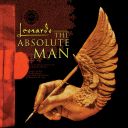
Seedów: 0
Komentarze: 0
Data dodania:
2026-01-23 17:29:06
Rozmiar: 488.47 MB
Peerów: 0
Dodał: Fallen_Angel
Opis
...SIŁA I PIĘKNO MUZYKI TKWIĄ W JEJ RÓŻNORODNOŚCI...
..::OPIS::.. Są takie zespoły, które nie tylko tworzą muzykę, ale wręcz rzeźbią w emocjach, a Soen od lat udowadnia, że w tej dziedzinie osiągnął stopień mistrzowski. Jego najnowsze dzieło, „Reliance”, którego premiera przypadła na mroźny 16. dzień stycznia 2026 roku, jawi się niczym schronienie dla zagubionych dusz – to płyta gęsta od pytań o ludzką kruchość i potrzebę bliskości w coraz bardziej odizolowanym świecie. Już od pierwszych dźwięków Soen nie bierze jeńców. Zespół mistrzowsko balansuje na krawędzi: z jednej strony uderza w nas potężnym, niemal mathmetalowym ciężarem sekcji rytmicznej, z drugiej zaś otula aksamitnym, pełnym melancholii głosem Joela Ekelöfa. Ta bezkompromisowość materializuje się w otwierającym album utworze „Primal”. „Reliance” to album, na którym szwedzcy progmetalowcy przestają jedynie obserwować rzeczywistość, a zaczynają ją bezlitośnie analizować. Pod względem produkcyjnym to absolutny majstersztyk, za który odpowiada Alexander Backlund z Fascination Street Studios. Zespół zrezygnował z nadmiernego przepychu na rzecz surowości, która paradoksalnie brzmi niezwykle nowocześnie. Gitary Cody’ego Lee Forda tną powietrze z chirurgiczną precyzją, a bębny Lopeza nadają kompozycjom niemal plemienny, transowy rytm. Szczególnie słychać to w „Axis”, gdzie sekcja rytmiczna napędza utwór z niespotykaną dotąd u Szwedów dynamiką, ocierającą się o rockową drapieżność. W utworach takich, jak „Discordia” czy „Unbound” słychać nową, dojrzalszą odwagę w eksperymentowaniu z mrokiem. To sprawia, że płyta, choć wierna estetyce znanej z płyt „Lotus”, „Imperial” czy "Memorial", tętni zupełnie nową, niepokojącą energią. Głównym motywem płyty jest tytułowe „poleganie” (reliance), ale ujęte w krzywym zwierciadle współczesności. Joel Ekelöf w przejmującym „Indifferent”, z towarzyszeniem kwartetu smyczkowego Atlantis, śpiewa o momencie, gdy uświadamiamy sobie, że osoba, na której budowaliśmy swój świat, stała się emocjonalnie nieobecna. Z kolei wspomniana „Discordia” to mroczna podróż w stronę izolacji, gdzie zespół bada, jak technologia i podziały społeczne niszczą naszą pierwotną potrzebę więzi. Płyta nie nuży ani przez moment, mimo że kompozycje rzadko przekraczają pięć minut. Soen udowadnia, że progresywność nie musi oznaczać dziesięciominutowych solówek, lecz gęstość emocjonalną i dbałość o detal. Album wieńczy hipnotyzujący „Vellichor”, który zostawia słuchacza w stanie zawieszenia między smutkiem a nadzieją. „Reliance” to nie jest płyta do słuchania w tle. To podróż przez monumentalny, opuszczony gmach ludzkiej psychiki, która wymaga od nas odwagi, by stanąć przed lustrem i zapytać: na kim tak naprawdę polegamy, gdy gasną wszystkie światła? To najmocniejszy kandydat do płyty roku, jaki mogliśmy sobie wymarzyć już na samym początku 2026 roku. Oto przewodnik po świecie, namalowanym przez Soen na ich najnowszym albumie: wyobraź sobie, że stoisz na skraju ogromnego, ciemnego lasu w mroźny poranek 16 stycznia 2026 roku. Powietrze jest tak zimne, że każdy oddech sprawia ból, ale jednocześnie przypomina ci, że żyjesz. „Primal” to właśnie ten pierwszy, gwałtowny haust powietrza. Utwór nie zaczyna się od melodii, lecz od rytmicznego uderzenia, które przypomina tętno kogoś, kto właśnie rzucił się do ucieczki – lub do ataku. Perkusja Martina Lopeza nie tylko nadaje tempo; ona wyznacza kierunek tej pierwotnej pogoni. Brzmienie gitar w tym utworze jest ciężkie i nieustępliwe, jakby płyty tektoniczne tarły o siebie głęboko pod ziemią. To dźwięk fundamentów, które odmawiają posłuszeństwa. W tym całym instrumentalnym chaosie pojawia się głos Joela Ekelöfa – czysty, wysoki, niemal nienaturalnie spokojny. Jest on jak światło latarni morskiej przebijające się przez sztorm; przypomina o tym, że nawet w najbardziej pierwotnym gniewie tkwi cząstka ludzkiej wrażliwości. „Primal” to muzyczny odpowiednik zrzucenia ciężkiego pancerza. To moment, w którym przestajesz analizować, a zaczynasz odczuwać. To brutalne przypomnienie, że pod warstwą technologii, garniturów i społecznych ról, każdy z nas nosi w sobie to samo, surowe i nieokiełznane „coś”, co każe nam walczyć o przetrwanie. To idealny „otwieracz” – nie puka do drzwi twojej percepcji, on wyważa je z zawiasów, przygotowując grunt pod resztę opowieści zawartej na płycie. Jeśli „Primal” był wyważeniem drzwi, to „Mercenary” jest wejściem prosto w gęsty, duszny tłum nowoczesnej metropolii, gdzie każda twarz jest maską, a każda relacja ma swoją ukrytą cenę. To muzyczny opis handlu własną tożsamością w świecie, który wymaga od nas ciągłej gotowości do sprzedaży cząstki siebie. Utwór opiera się na nerwowym, niemal paranoicznym pulsie. Perkusja Martina Lopeza brzmi tutaj jak precyzyjny mechanizm zegarowy, który odlicza czas do momentu, w którym będziemy musieli opowiedzieć się po jednej ze stron. Nie ma tu miejsca na przypadek – każdy akcent jest jak pewny krok najemnika idącego na misję. Cody Lee Ford operuje tu riffami, które są zimne i techniczne. Gitary nie płyną – one tną powietrze z chirurgiczną precyzją, tworząc dźwiękową architekturę szklanych biurowców i ciemnych alejek. To brzmienie odziera słuchacza ze złudzeń, że w tej grze można zachować czyste ręce. Joel Ekelöf w refrenie wchodzi na wyżyny swojej melodyjności, ale tym razem w jego głosie słychać nutę goryczy. Śpiewa jak ktoś, kto właśnie przejrzał zasady gry i zrozumiał, że w pogoni za „więcej” stał się jedynie narzędziem w cudzych rękach. Jego wokal jest tu jedynym ludzkim elementem w świecie zdominowanym przez metaliczną precyzję instrumentów. „Mercenary” to dźwiękowy odpowiednik spaceru po krawędzi wieżowca. Czujesz zawrót głowy od wysokości i pędu świata, ale jednocześnie boisz się zatrzymać, by nie stracić równowagi. To utwór o utracie niewinności i o momencie, w którym uświadamiamy sobie, że w pogoni za przetrwaniem staliśmy się najemnikami we własnym życiu. To najbardziej drapieżny moment na albumie, który udowadnia, że Soen potrafi zamienić progresywny metal w ścieżkę dźwiękową do współczesnego thrillera psychologicznego. Jeśli poprzednie utwory prowadziły nas przez świat zewnętrzny, to „Discordia” jest momentem, w którym Soen gwałtownie skręca w głąb najmroczniejszych korytarzy ludzkiej psychiki. To najgęstszy i najbardziej niepokojący punkt albumu – muzyczne studium rozpadu, gdzie harmonia ustępuje miejsca tytułowemu nienastrojeniu. Utwór otwiera się partiami, które brzmią jak echo głosów w pustym kanale. Niepokój nie bierze się tu z głośności, ale z narastającego poczucia osaczenia. To dźwiękowy odpowiednik błądzenia po labiryncie luster – w każdym odbiciu widzisz kogoś innego i po chwili nie wiesz już, która twarz należy do ciebie, a która jest jedynie projekcją twoich lęków. Sekcja rytmiczna w „Discordii” porzuca marszową pewność siebie na rzecz połamanych rytmicznych podziałów. Gitary nie budują już bezpiecznych struktur; one raczej zgrzytają i zawodzą, naśladując dźwięk pękających więzi. To moment, w którym zespół bada, jak technologia i społeczne podziały kruszą naszą pierwotną potrzebę jedności, zamieniając ją w kakofonię wzajemnych oskarżeń. Joel Ekelöf śpiewa tutaj z niespotykaną wcześniej rezygnacją, która w refrenach przechodzi w przejmujące wołanie o ratunek. Jego głos nie jest już latarnią – jest raczej ostatnią iskrą gasnącą w ciemności. To opis izolacji absolutnej, w której jedynym towarzyszem człowieka staje się jego własny cień. „Discordia” to muzyczny odpowiednik stania na środku pękającej tafli lodu. Słyszysz każdy trzask pod stopami, czujesz zbliżający się chłód głębiny i wiesz, że nie ma już dokąd uciec. To utwór o „niezgodzie” – tej wewnętrznej, która rozdziera nas od środka, i tej zewnętrznej, która sprawia, że patrzymy na drugiego człowieka jak na wroga. To bez wątpienia najbardziej „psychologiczny” moment płyty „Reliance”, zostawiający słuchacza w stanie głębokiego, oczyszczającego niepokoju. Po gęstym mroku i zagubieniu w labiryncie „Discordii”, „Axis” przynosi moment brutalnej, niemal bolesnej, stabilizacji. Tytułowa „Oś” to jedyny stały punkt w wirującym chaosie – to muzyczne wyobrażenie wewnętrznej siły, która każe nam stać prosto, nawet gdy cały świat wokół zaczyna pękać i walić się nam na głowę. Jeśli „Primal” był ucieczką, to sekcja rytmiczna w „Axis” jest fundamentem. Perkusja Martina Lopeza uderza tu z niespotykaną dotąd drapieżnością, ale jest to uderzenie kontrolowane, ciężkie i pewne. Przypomina ono miarowy krok kogoś, kto niesie na swoich barkach ogromny ciężar, ale odmawia upadku. To dynamika, która ociera się o rockową bezczelność, dając słuchaczowi poczucie dziwnej mocy. Cody Lee Ford rezygnuje tu z eterycznych plam dźwięku na rzecz riffów, które brzmią jak stalowe pręty zbrojeniowe. Są twarde, nieugięte i zimne. Gitary w tym utworze nie ozdabiają rzeczywistości – one ją konstruują, tworząc klatkę bezpieczeństwa, w której możemy się schronić przed szaleństwem poprzednich kompozycji. Joel Ekelöf porzuca tu melancholię na rzecz pewnego rodzaju determinacji. Jego wokal w „Axis” brzmi jak głos dowódcy w samym środku bitwy; nie pociesza, ale mobilizuje. To przypomnienie, że każdy z nas ma w sobie taką „oś” – kręgosłup moralny lub emocjonalny, którego nie da się złamać, o ile tylko go posiadamy. „Axis” to muzyczny odpowiednik stania w samym centrum cyklonu. Dookoła wirują szczątki naszych marzeń, lęków i relacji, ale tutaj, w samym środku, panuje absolutna, pionowa dyscyplina. To utwór o punkcie oparcia, którego szukamy przez całe życie. Soen pokazuje w nim swoją najbardziej drapieżną, a jednocześnie najbardziej stabilną twarz, udowadniając, że progresywny metal może być jednocześnie monumentalny i niesamowicie konkretny. To serce albumu, które pompuje krew do wszystkich pozostałych utworów. Po surowym i stabilnym „Axis”, „Huntress” zanurza nas w zupełnie innym żywiole. To utwór pełen majestatycznego, mrocznego błękitu. Wyobraź sobie tę kompozycję jako spotkanie z drapieżnikiem, który nie goni swojej ofiary z głośnym rykiem, lecz czeka w absolutnej ciszy głębin, aż ta sama wpadnie w jego hipnotyzujące sidła. Muzyka w „Huntress” płynie powoli, z niesamowitą gracją, ale pod tą gładką powierzchnią wyczuwa się ogromny ciężar. To dźwiękowy odpowiednik schodzenia coraz głębiej pod wodę – światło zanika, a ciśnienie zaczyna wyciskać powietrze z płuc, zmuszając do całkowitego poddania się rytmowi. Partie instrumentów strunowych są tu bardziej płynne, niemal oniryczne. Gitary nie tną już powietrza jak w „Mercenary”; one falują, tworząc iluzję bezpieczeństwa, która w każdej chwili może zamienić się w śmiertelny uścisk. To moment, w którym Soen bawi się dynamiką ciszy i nagłego, potężnego uderzenia, przypominającego atak z głębi mroku. Joel Ekelöf operuje tu barwami, które kuszą i niepokoją jednocześnie. Jego wokal ma tu w sobie coś z mitycznej syreny – jest piękny, kojący, a jednak podszyty pierwotnym niebezpieczeństwem. Śpiewa o pokusie, której nie sposób się oprzeć, nawet wiedząc, że prowadzi ona ku zatraceniu. „Huntress” to muzyczny odpowiednik fascynacji tym, co niebezpieczne. To ten ułamek sekundy, w którym patrzysz w oczy drapieżnika i zamiast strachu czujesz dziwny rodzaj spokoju i jedności z naturą. Utwór ten pokazuje bardziej „organiczne” i tajemnicze oblicze Soen, udowadniając, że zespół potrafi kreować napięcie nie tylko siłą uderzenia, ale przede wszystkim głębią nastroju. To hipnotyzująca pauza przed emocjonalnym szturmem, który ma nadejść w drugiej połowie płyty. Jeśli poprzedni utwór był sennym poddaniem się głębi, to „Unbound” jest gwałtownym wynurzeniem na powierzchnię. To kompozycja o bolesnym, ale koniecznym wyzwoleniu – muzyczny odpowiednik światła wpadającego do ciemnej jaskini, które choć najpierw razi i parzy nieprzyzwyczajone oczy, ostatecznie pozwala dostrzec drogę wyjścia. Utwór tętni energią kogoś, kto po latach bezruchu postanowił zerwać krępujące go więzy. Gitary w „Unbound” brzmią wyjątkowo surowo, niemal nieoszlifowanie, jak struny, które pękają pod wpływem zbyt wielkiego napięcia. To nie jest elegancki progresywny pasaż – to dźwięk rozrywanej materii, fizyczna manifestacja buntu przeciwko własnym ograniczeniom. Sekcja rytmiczna Martina Lopeza porzuca tu plemienną transowość na rzecz bardziej otwartego, niemal optymistycznego (choć wciąż podszytego niepokojem) pędu. To puls serca, które po raz pierwszy od dawna bije własnym, a nie narzuconym rytmem. Słychać tu przestrzeń, której brakowało w dusznej „Discordii”. Joel wchodzi w tym utworze w rejestry pełne pasji i oczyszczającej siły. Jego wokal w „Unbound” nie szuka już schronienia – on domaga się wolności. W refrenie słychać dziwną, słodko-gorzką ulgę kogoś, kto stracił wszystko, co go definiowało, ale dzięki temu zyskał prawo do bycia kimkolwiek zechce. „Unbound” to muzyczny odpowiednik pierwszego kroku postawionego poza murami więzienia. Czujesz strach przed nieznanym, ale zapach wolności jest silniejszy niż lęk. To najbardziej „oczyszczający” moment albumu „Reliance”, w którym Soen pokazuje, że po każdym mroku musi nastąpić świt, nawet jeśli słońce ma oświetlić jedynie zgliszcza. To pieśń o odwadze do bycia nieokiełznanym. Po gwałtownym wyzwoleniu w „Unbound”, album „Reliance” zapada się w przejmującą, niemal sakralną ciszę. „Indifferent” to studium obojętności – stanu, który jest znacznie mroczniejszy niż nienawiść, bo oznacza całkowitą pustkę tam, gdzie kiedyś tętniło życie. To muzyczny zapis momentu, w którym orientujemy się, że fundament, na którym budowaliśmy swój świat, zamienił się w pył. Obecność kwartetu smyczkowego Atlantis nadaje temu utworowi niemal filmowy charakter. Smyczki nie pełnią tu roli tła; są jak chłodna dłoń położona na gorączkującym czole lub jak powolne krople deszczu, które przez lata, niezauważalnie, drążą dziury w najtwardszym marmurze. To dźwięk powolnej erozji uczuć. Instrumentarium w tym utworze zostaje ograniczone do minimum, dając ogromną przestrzeń ciszy. Każde uderzenie perkusji i każde szarpnięcie struny brzmi jak echo w pustym domu, z którego właśnie wyprowadzili się wszyscy lokatorzy. Soen pokazuje tu swoją najbardziej kruchą twarz, rezygnując z metalowego ciężaru na rzecz ciężaru emocjonalnego, który jest znacznie trudniejszy do udźwignięcia. Joel Ekelöf w „Indifferent” osiąga szczyt swojej emocjonalnej transparentności. Nie śpiewa do tłumów, lecz szepcze prosto do ucha słuchacza o bólu bycia niezauważonym. To głos kogoś, kto przestał walczyć o uwagę i pogodził się z faktem, że stał się dla kogoś innego jedynie przezroczystym elementem krajobrazu. „Indifferent” to muzyczny odpowiednik patrzenia na stare zdjęcie, które wyblakło do tego stopnia, że nie rozpoznajesz już na nim własnej twarzy. To utwór o emocjonalnym wygaszaniu, o momencie, w którym ogień namiętności czy gniewu zamienia się w zimny popiół. To najbardziej intymny i bolesny fragment „Reliance”, przypominający nam, że najcichsze utwory potrafią krzyczeć najgłośniej. To chwila zatrzymania, która przygotowuje nas na ostateczne pożegnanie z albumem. Po bolesnej i intymnej ciszy „Indifferent”, „Drifter” zabiera nas w podróż bez wyznaczonego celu. To utwór o ludziach, którzy przestali stawiać opór nurtowi życia – muzyczny odpowiednik dryfowania po bezkresnym oceanie, gdzie horyzont zlewa się z niebem, a pojęcie czasu przestaje istnieć. Perkusja Martina Lopeza ma tu w sobie coś kojącego, a jednocześnie nieuchronnego. To miarowy szum fal uderzających o burtę statku, który stracił załogę i żagle. Muzyka unosi się na powierzchni melancholii, nie szukając portu, do którego mogłaby zawinąć. Jest w tym rytmie dziwny rodzaj wolności – tej, która pojawia się dopiero wtedy, gdy przestajemy rozpaczliwie walczyć o kierunek. Partie gitarowe w „Drifter” są rozmyte, pełne pogłosów i onirycznego spokoju. Nie ma tu ostrych cięć; są za to miękkie, dźwiękowe plamy, które otulają słuchacza niczym gęsta mgła. To brzmienie sugeruje, że świat wokół nas stał się nierealny, a my sami zmieniliśmy się w obserwatorów własnego losu, płynących tam, gdzie niesie nas prąd. Joel Ekelöf śpiewa w tym utworze z niezwykłym, niemal eterycznym spokojem. Jego głos zdaje się dobiegać z dużej odległości, jakby wokalista znajdował się już po drugiej stronie doświadczenia, o którym opowiada. To śpiew kogoś, kto pogodził się z tym, że nie mamy wpływu na kierunek wiatru, i odnalazł w tej rezygnacji niespodziewaną ulgę. „Drifter” to muzyczny odpowiednik poddania się grawitacji. To moment, w którym zamykasz oczy i pozwalasz, by świat po prostu się dział obok ciebie. Utwór ten ukazuje Soen w roli filozofów codzienności, którzy wiedzą, że czasem największą siłą jest umiejętność odpuszczenia. To spokojna, refleksyjna prosta przed finałowym uderzeniem, wprowadzająca słuchacza w stan głębokiego, niemal medytacyjnego zawieszenia. W strukturze albumu utwór „Draconian” pełni rolę emocjonalnego przesilenia. To utwór monumentalny i bezlitosny, jak sama jego nazwa sugeruje. Jeśli cała płyta była wędrówką przez mroczny gmach psychiki, to tutaj docieramy do jego fundamentów, by stoczyć ostateczną walkę z własnymi demonami. To moment oczyszczenia przez ogień, który musi wypalić wszystko, co zbędne. Perkusja odzyskuje tu swoją potężną, niemal militarną dyscyplinę. To nie jest już dryfowanie znane z „Drifter”; to miarowy, ciężki krok kogoś, kto idzie wyprostowany przez środek burzy. Każde uderzenie w werbel brzmi jak pieczęć stawiana pod wyrokiem losu – z pełną świadomością, że nie ma już powrotu do tego, co było. Soen buduje tu ścianę dźwięku, która jest jednocześnie przytłaczająca i majestatyczna. Gitary wznoszą monumentalne konstrukcje przypominające gotyckie łuki, które pod wpływem żaru emocji zaczynają pękać. Solówki w „Draconian” nie są popisami techniki, lecz bolesnymi krzykami duszy, która próbuje wyrzucić z siebie wszystko, co gromadziło się w niej przez poprzednie utwory. Joel Ekelöf śpiewa z mocą, która wstrząsa posadami albumu. Jego wokal traci resztki szeptanej kruchości na rzecz dumnego, niemal epickiego tonu. To głos kogoś, kto przeszedł przez izolację, gniew i obojętność, a teraz stoi na zgliszczach, gotowy na to, co przyniesie ostateczny koniec. „Draconian” to muzyczny odpowiednik wielkiej bitwy, po której opada pył. Słyszysz szczęk stali i huk walących się murów, ale w tym chaosie odnajdujesz dziwną, surową sprawiedliwość. To utwór ostatecznego rozliczenia, który zostawia słuchacza wycieńczonego, ale oczyszczonego. To potężne, kulminacyjne uderzenie, które jest konieczne, byśmy mogli w pełni docenić ciszę i kurz osiadający w finałowym „Vellichor”. Jeśli „Draconian” był płonącym horyzontem i hukiem walących się murów, to „Vellichor” jest chwilą, gdy opada ostatni dym, a my zostajemy sami w opuszczonej, zakurzonej bibliotece ludzkich wspomnień. Słowo to oznacza specyficzną, nostalgiczną atmosferę starych księgarni – zapach papieru i czasu, który stanął w miejscu. To właśnie ten utwór ostatecznie rygluje drzwi albumu, zostawiając słuchacza w stanie zawieszenia między głębokim smutkiem a kruchą, niemal przezroczystą nadzieją. Muzyka w tym utworze jest niemal namacalna. To najbardziej oniryczny moment płyty – Soen rezygnuje tu z gwałtowności na rzecz koronkowej precyzji. Brzmi to jak przeglądanie starego albumu ze zdjęciami, gdzie każda fotografia przypomina o kimś, kogo już nie ma, lub o wersji nas samych, którą dawno porzuciliśmy. Cody Lee Ford nie używa tu instrumentu jako narzędzia do cięcia powietrza, lecz jako pędzla nasączonego akwarelą. Dźwięki są długie, nasycone echem i powoli wygasają w przestrzeni, naśladując proces zapominania. To muzyczna definicja nostalgii – piękna, kojąca, a jednocześnie bolesna w swojej nieuchronności. Joel Ekelöf śpiewa z taką lekkością, jakby jego głos nie pochodził z gardła, lecz był częścią powietrza w pomieszczeniu. W „Vellichor” nie ma już walki, nie ma pytań o „poleganie” – jest tylko akceptacja. Finałowe frazy wybrzmiewają z niesamowitą czystością, przypominając ostatnie bicie serca przed zapadnięciem w głęboki, bezpieczny sen. „Vellichor” to muzyczny odpowiednik odłożenia przeczytanej książki na najwyższą półkę. Wiesz, że ta historia już się skończyła, czujesz ciężar jej treści w sercu, ale jednocześnie ogarnia cię spokój, bo każda tajemnica została wypowiedziana. To utwór, który nie pozwala na szybki powrót do rzeczywistości – po jego wybrzmieniu cisza w pokoju wydaje się cięższa, a świat za oknem jakby na chwilę zwolnił. To idealny, eteryczny punkt końcowy dla tak emocjonalnego kolosa, jakim jest „Reliance”. „Reliance” to 48 minut muzyki, która nie uznaje kompromisów. Dziesięć kompozycji tworzy zamknięty cykl: podróż od pierwotnego gniewu, przez labirynty izolacji, aż po ostateczne pogodzenie się z losem. Soen jawi się jako zespół u szczytu swoich możliwości, który udowadnia, że progresywny metal ma jeszcze wiele do powiedzenia w kwestii opisywania ludzkiej duszy. To album, do którego wraca się nie po to, by posłuchać piosenek, ale po to, by raz jeszcze przeżyć niezwykłe dźwiękowe katharsis. Na koniec przedstawmy jeszcze wykonawców Za to monumentalne muzyczne płótno o życiu odpowiadają wyjątkowi malarze dźwięku: Joel Ekelöf – wokal (głos, który jest sercem Soen. Na „Reliance” wędruje od mrocznego szeptu po potężne, niemal sakralne rejestry), Martin Lopez – perkusja, instrumenty perkusyjne (mózg zespołu i jego fundament; to on nadaje całości ten charakterystyczny, plemienny i precyzyjny puls), Cody Lee Ford – gitara prowadząca (architekt dźwiękowych przestrzeni; jego solówki na tej płycie to nie tylko technika, ale przede wszystkim emocjonalne opowieści), Oleksii „Zlatoyar” Kobel – gitara basowa (odpowiada za gęsty, niski mruk, który czuć w klatce piersiowej przy każdym uderzeniu w „Axis” czy „Draconian”), Lars Enok Åhlund – klawisze, gitara rytmiczna (mistrz nastroju, który swoimi partiami buduje filmową atmosferę i wypełnia tło nostalgicznym blaskiem). Maciej Niemczak With "Reliance", Soen continue their ascent as one of modern metal’s most expressive and emotionally resonant bands. The album deepens their signature blend of progressive precision, melodic intensity and lyrical introspection, weaving together towering riffs, sweeping dynamics and the unmistakable chemistry that has defined their recent work. "Reliance" feels both expansive and intimate — an exploration of trust, struggle and the fragile bonds that hold us together. Driven by powerful performances and a sharpened sense of purpose, Soen deliver a record that balances weight and beauty in equal measure, reaffirming their place at the forefront of contemporary progressive metal. ..::TRACK-LIST::.. 1. Primal 2. Mercenary 3. Discordia 4. Axis 5. Huntress 6. Unbound 7. Indifferent 8. Drifter 9. Draconian 10. Vellichor ..::OBSADA::.. Joel Ekelöf - vocals Cody Lee Ford - guitar Stefan Stenberg - bass Lars Åhlund - keyboards, guitar Martin Lopez - drums https://www.youtube.com/watch?v=8SMXsUqF6OM SEED 15:00-22:00. POLECAM!!! 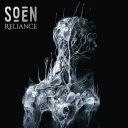
Seedów: 0
Komentarze: 0
Data dodania:
2026-01-21 19:55:30
Rozmiar: 101.65 MB
Peerów: 0
Dodał: Fallen_Angel
Opis
...SIŁA I PIĘKNO MUZYKI TKWIĄ W JEJ RÓŻNORODNOŚCI...
..::OPIS::.. Są takie zespoły, które nie tylko tworzą muzykę, ale wręcz rzeźbią w emocjach, a Soen od lat udowadnia, że w tej dziedzinie osiągnął stopień mistrzowski. Jego najnowsze dzieło, „Reliance”, którego premiera przypadła na mroźny 16. dzień stycznia 2026 roku, jawi się niczym schronienie dla zagubionych dusz – to płyta gęsta od pytań o ludzką kruchość i potrzebę bliskości w coraz bardziej odizolowanym świecie. Już od pierwszych dźwięków Soen nie bierze jeńców. Zespół mistrzowsko balansuje na krawędzi: z jednej strony uderza w nas potężnym, niemal mathmetalowym ciężarem sekcji rytmicznej, z drugiej zaś otula aksamitnym, pełnym melancholii głosem Joela Ekelöfa. Ta bezkompromisowość materializuje się w otwierającym album utworze „Primal”. „Reliance” to album, na którym szwedzcy progmetalowcy przestają jedynie obserwować rzeczywistość, a zaczynają ją bezlitośnie analizować. Pod względem produkcyjnym to absolutny majstersztyk, za który odpowiada Alexander Backlund z Fascination Street Studios. Zespół zrezygnował z nadmiernego przepychu na rzecz surowości, która paradoksalnie brzmi niezwykle nowocześnie. Gitary Cody’ego Lee Forda tną powietrze z chirurgiczną precyzją, a bębny Lopeza nadają kompozycjom niemal plemienny, transowy rytm. Szczególnie słychać to w „Axis”, gdzie sekcja rytmiczna napędza utwór z niespotykaną dotąd u Szwedów dynamiką, ocierającą się o rockową drapieżność. W utworach takich, jak „Discordia” czy „Unbound” słychać nową, dojrzalszą odwagę w eksperymentowaniu z mrokiem. To sprawia, że płyta, choć wierna estetyce znanej z płyt „Lotus”, „Imperial” czy "Memorial", tętni zupełnie nową, niepokojącą energią. Głównym motywem płyty jest tytułowe „poleganie” (reliance), ale ujęte w krzywym zwierciadle współczesności. Joel Ekelöf w przejmującym „Indifferent”, z towarzyszeniem kwartetu smyczkowego Atlantis, śpiewa o momencie, gdy uświadamiamy sobie, że osoba, na której budowaliśmy swój świat, stała się emocjonalnie nieobecna. Z kolei wspomniana „Discordia” to mroczna podróż w stronę izolacji, gdzie zespół bada, jak technologia i podziały społeczne niszczą naszą pierwotną potrzebę więzi. Płyta nie nuży ani przez moment, mimo że kompozycje rzadko przekraczają pięć minut. Soen udowadnia, że progresywność nie musi oznaczać dziesięciominutowych solówek, lecz gęstość emocjonalną i dbałość o detal. Album wieńczy hipnotyzujący „Vellichor”, który zostawia słuchacza w stanie zawieszenia między smutkiem a nadzieją. „Reliance” to nie jest płyta do słuchania w tle. To podróż przez monumentalny, opuszczony gmach ludzkiej psychiki, która wymaga od nas odwagi, by stanąć przed lustrem i zapytać: na kim tak naprawdę polegamy, gdy gasną wszystkie światła? To najmocniejszy kandydat do płyty roku, jaki mogliśmy sobie wymarzyć już na samym początku 2026 roku. Oto przewodnik po świecie, namalowanym przez Soen na ich najnowszym albumie: wyobraź sobie, że stoisz na skraju ogromnego, ciemnego lasu w mroźny poranek 16 stycznia 2026 roku. Powietrze jest tak zimne, że każdy oddech sprawia ból, ale jednocześnie przypomina ci, że żyjesz. „Primal” to właśnie ten pierwszy, gwałtowny haust powietrza. Utwór nie zaczyna się od melodii, lecz od rytmicznego uderzenia, które przypomina tętno kogoś, kto właśnie rzucił się do ucieczki – lub do ataku. Perkusja Martina Lopeza nie tylko nadaje tempo; ona wyznacza kierunek tej pierwotnej pogoni. Brzmienie gitar w tym utworze jest ciężkie i nieustępliwe, jakby płyty tektoniczne tarły o siebie głęboko pod ziemią. To dźwięk fundamentów, które odmawiają posłuszeństwa. W tym całym instrumentalnym chaosie pojawia się głos Joela Ekelöfa – czysty, wysoki, niemal nienaturalnie spokojny. Jest on jak światło latarni morskiej przebijające się przez sztorm; przypomina o tym, że nawet w najbardziej pierwotnym gniewie tkwi cząstka ludzkiej wrażliwości. „Primal” to muzyczny odpowiednik zrzucenia ciężkiego pancerza. To moment, w którym przestajesz analizować, a zaczynasz odczuwać. To brutalne przypomnienie, że pod warstwą technologii, garniturów i społecznych ról, każdy z nas nosi w sobie to samo, surowe i nieokiełznane „coś”, co każe nam walczyć o przetrwanie. To idealny „otwieracz” – nie puka do drzwi twojej percepcji, on wyważa je z zawiasów, przygotowując grunt pod resztę opowieści zawartej na płycie. Jeśli „Primal” był wyważeniem drzwi, to „Mercenary” jest wejściem prosto w gęsty, duszny tłum nowoczesnej metropolii, gdzie każda twarz jest maską, a każda relacja ma swoją ukrytą cenę. To muzyczny opis handlu własną tożsamością w świecie, który wymaga od nas ciągłej gotowości do sprzedaży cząstki siebie. Utwór opiera się na nerwowym, niemal paranoicznym pulsie. Perkusja Martina Lopeza brzmi tutaj jak precyzyjny mechanizm zegarowy, który odlicza czas do momentu, w którym będziemy musieli opowiedzieć się po jednej ze stron. Nie ma tu miejsca na przypadek – każdy akcent jest jak pewny krok najemnika idącego na misję. Cody Lee Ford operuje tu riffami, które są zimne i techniczne. Gitary nie płyną – one tną powietrze z chirurgiczną precyzją, tworząc dźwiękową architekturę szklanych biurowców i ciemnych alejek. To brzmienie odziera słuchacza ze złudzeń, że w tej grze można zachować czyste ręce. Joel Ekelöf w refrenie wchodzi na wyżyny swojej melodyjności, ale tym razem w jego głosie słychać nutę goryczy. Śpiewa jak ktoś, kto właśnie przejrzał zasady gry i zrozumiał, że w pogoni za „więcej” stał się jedynie narzędziem w cudzych rękach. Jego wokal jest tu jedynym ludzkim elementem w świecie zdominowanym przez metaliczną precyzję instrumentów. „Mercenary” to dźwiękowy odpowiednik spaceru po krawędzi wieżowca. Czujesz zawrót głowy od wysokości i pędu świata, ale jednocześnie boisz się zatrzymać, by nie stracić równowagi. To utwór o utracie niewinności i o momencie, w którym uświadamiamy sobie, że w pogoni za przetrwaniem staliśmy się najemnikami we własnym życiu. To najbardziej drapieżny moment na albumie, który udowadnia, że Soen potrafi zamienić progresywny metal w ścieżkę dźwiękową do współczesnego thrillera psychologicznego. Jeśli poprzednie utwory prowadziły nas przez świat zewnętrzny, to „Discordia” jest momentem, w którym Soen gwałtownie skręca w głąb najmroczniejszych korytarzy ludzkiej psychiki. To najgęstszy i najbardziej niepokojący punkt albumu – muzyczne studium rozpadu, gdzie harmonia ustępuje miejsca tytułowemu nienastrojeniu. Utwór otwiera się partiami, które brzmią jak echo głosów w pustym kanale. Niepokój nie bierze się tu z głośności, ale z narastającego poczucia osaczenia. To dźwiękowy odpowiednik błądzenia po labiryncie luster – w każdym odbiciu widzisz kogoś innego i po chwili nie wiesz już, która twarz należy do ciebie, a która jest jedynie projekcją twoich lęków. Sekcja rytmiczna w „Discordii” porzuca marszową pewność siebie na rzecz połamanych rytmicznych podziałów. Gitary nie budują już bezpiecznych struktur; one raczej zgrzytają i zawodzą, naśladując dźwięk pękających więzi. To moment, w którym zespół bada, jak technologia i społeczne podziały kruszą naszą pierwotną potrzebę jedności, zamieniając ją w kakofonię wzajemnych oskarżeń. Joel Ekelöf śpiewa tutaj z niespotykaną wcześniej rezygnacją, która w refrenach przechodzi w przejmujące wołanie o ratunek. Jego głos nie jest już latarnią – jest raczej ostatnią iskrą gasnącą w ciemności. To opis izolacji absolutnej, w której jedynym towarzyszem człowieka staje się jego własny cień. „Discordia” to muzyczny odpowiednik stania na środku pękającej tafli lodu. Słyszysz każdy trzask pod stopami, czujesz zbliżający się chłód głębiny i wiesz, że nie ma już dokąd uciec. To utwór o „niezgodzie” – tej wewnętrznej, która rozdziera nas od środka, i tej zewnętrznej, która sprawia, że patrzymy na drugiego człowieka jak na wroga. To bez wątpienia najbardziej „psychologiczny” moment płyty „Reliance”, zostawiający słuchacza w stanie głębokiego, oczyszczającego niepokoju. Po gęstym mroku i zagubieniu w labiryncie „Discordii”, „Axis” przynosi moment brutalnej, niemal bolesnej, stabilizacji. Tytułowa „Oś” to jedyny stały punkt w wirującym chaosie – to muzyczne wyobrażenie wewnętrznej siły, która każe nam stać prosto, nawet gdy cały świat wokół zaczyna pękać i walić się nam na głowę. Jeśli „Primal” był ucieczką, to sekcja rytmiczna w „Axis” jest fundamentem. Perkusja Martina Lopeza uderza tu z niespotykaną dotąd drapieżnością, ale jest to uderzenie kontrolowane, ciężkie i pewne. Przypomina ono miarowy krok kogoś, kto niesie na swoich barkach ogromny ciężar, ale odmawia upadku. To dynamika, która ociera się o rockową bezczelność, dając słuchaczowi poczucie dziwnej mocy. Cody Lee Ford rezygnuje tu z eterycznych plam dźwięku na rzecz riffów, które brzmią jak stalowe pręty zbrojeniowe. Są twarde, nieugięte i zimne. Gitary w tym utworze nie ozdabiają rzeczywistości – one ją konstruują, tworząc klatkę bezpieczeństwa, w której możemy się schronić przed szaleństwem poprzednich kompozycji. Joel Ekelöf porzuca tu melancholię na rzecz pewnego rodzaju determinacji. Jego wokal w „Axis” brzmi jak głos dowódcy w samym środku bitwy; nie pociesza, ale mobilizuje. To przypomnienie, że każdy z nas ma w sobie taką „oś” – kręgosłup moralny lub emocjonalny, którego nie da się złamać, o ile tylko go posiadamy. „Axis” to muzyczny odpowiednik stania w samym centrum cyklonu. Dookoła wirują szczątki naszych marzeń, lęków i relacji, ale tutaj, w samym środku, panuje absolutna, pionowa dyscyplina. To utwór o punkcie oparcia, którego szukamy przez całe życie. Soen pokazuje w nim swoją najbardziej drapieżną, a jednocześnie najbardziej stabilną twarz, udowadniając, że progresywny metal może być jednocześnie monumentalny i niesamowicie konkretny. To serce albumu, które pompuje krew do wszystkich pozostałych utworów. Po surowym i stabilnym „Axis”, „Huntress” zanurza nas w zupełnie innym żywiole. To utwór pełen majestatycznego, mrocznego błękitu. Wyobraź sobie tę kompozycję jako spotkanie z drapieżnikiem, który nie goni swojej ofiary z głośnym rykiem, lecz czeka w absolutnej ciszy głębin, aż ta sama wpadnie w jego hipnotyzujące sidła. Muzyka w „Huntress” płynie powoli, z niesamowitą gracją, ale pod tą gładką powierzchnią wyczuwa się ogromny ciężar. To dźwiękowy odpowiednik schodzenia coraz głębiej pod wodę – światło zanika, a ciśnienie zaczyna wyciskać powietrze z płuc, zmuszając do całkowitego poddania się rytmowi. Partie instrumentów strunowych są tu bardziej płynne, niemal oniryczne. Gitary nie tną już powietrza jak w „Mercenary”; one falują, tworząc iluzję bezpieczeństwa, która w każdej chwili może zamienić się w śmiertelny uścisk. To moment, w którym Soen bawi się dynamiką ciszy i nagłego, potężnego uderzenia, przypominającego atak z głębi mroku. Joel Ekelöf operuje tu barwami, które kuszą i niepokoją jednocześnie. Jego wokal ma tu w sobie coś z mitycznej syreny – jest piękny, kojący, a jednak podszyty pierwotnym niebezpieczeństwem. Śpiewa o pokusie, której nie sposób się oprzeć, nawet wiedząc, że prowadzi ona ku zatraceniu. „Huntress” to muzyczny odpowiednik fascynacji tym, co niebezpieczne. To ten ułamek sekundy, w którym patrzysz w oczy drapieżnika i zamiast strachu czujesz dziwny rodzaj spokoju i jedności z naturą. Utwór ten pokazuje bardziej „organiczne” i tajemnicze oblicze Soen, udowadniając, że zespół potrafi kreować napięcie nie tylko siłą uderzenia, ale przede wszystkim głębią nastroju. To hipnotyzująca pauza przed emocjonalnym szturmem, który ma nadejść w drugiej połowie płyty. Jeśli poprzedni utwór był sennym poddaniem się głębi, to „Unbound” jest gwałtownym wynurzeniem na powierzchnię. To kompozycja o bolesnym, ale koniecznym wyzwoleniu – muzyczny odpowiednik światła wpadającego do ciemnej jaskini, które choć najpierw razi i parzy nieprzyzwyczajone oczy, ostatecznie pozwala dostrzec drogę wyjścia. Utwór tętni energią kogoś, kto po latach bezruchu postanowił zerwać krępujące go więzy. Gitary w „Unbound” brzmią wyjątkowo surowo, niemal nieoszlifowanie, jak struny, które pękają pod wpływem zbyt wielkiego napięcia. To nie jest elegancki progresywny pasaż – to dźwięk rozrywanej materii, fizyczna manifestacja buntu przeciwko własnym ograniczeniom. Sekcja rytmiczna Martina Lopeza porzuca tu plemienną transowość na rzecz bardziej otwartego, niemal optymistycznego (choć wciąż podszytego niepokojem) pędu. To puls serca, które po raz pierwszy od dawna bije własnym, a nie narzuconym rytmem. Słychać tu przestrzeń, której brakowało w dusznej „Discordii”. Joel wchodzi w tym utworze w rejestry pełne pasji i oczyszczającej siły. Jego wokal w „Unbound” nie szuka już schronienia – on domaga się wolności. W refrenie słychać dziwną, słodko-gorzką ulgę kogoś, kto stracił wszystko, co go definiowało, ale dzięki temu zyskał prawo do bycia kimkolwiek zechce. „Unbound” to muzyczny odpowiednik pierwszego kroku postawionego poza murami więzienia. Czujesz strach przed nieznanym, ale zapach wolności jest silniejszy niż lęk. To najbardziej „oczyszczający” moment albumu „Reliance”, w którym Soen pokazuje, że po każdym mroku musi nastąpić świt, nawet jeśli słońce ma oświetlić jedynie zgliszcza. To pieśń o odwadze do bycia nieokiełznanym. Po gwałtownym wyzwoleniu w „Unbound”, album „Reliance” zapada się w przejmującą, niemal sakralną ciszę. „Indifferent” to studium obojętności – stanu, który jest znacznie mroczniejszy niż nienawiść, bo oznacza całkowitą pustkę tam, gdzie kiedyś tętniło życie. To muzyczny zapis momentu, w którym orientujemy się, że fundament, na którym budowaliśmy swój świat, zamienił się w pył. Obecność kwartetu smyczkowego Atlantis nadaje temu utworowi niemal filmowy charakter. Smyczki nie pełnią tu roli tła; są jak chłodna dłoń położona na gorączkującym czole lub jak powolne krople deszczu, które przez lata, niezauważalnie, drążą dziury w najtwardszym marmurze. To dźwięk powolnej erozji uczuć. Instrumentarium w tym utworze zostaje ograniczone do minimum, dając ogromną przestrzeń ciszy. Każde uderzenie perkusji i każde szarpnięcie struny brzmi jak echo w pustym domu, z którego właśnie wyprowadzili się wszyscy lokatorzy. Soen pokazuje tu swoją najbardziej kruchą twarz, rezygnując z metalowego ciężaru na rzecz ciężaru emocjonalnego, który jest znacznie trudniejszy do udźwignięcia. Joel Ekelöf w „Indifferent” osiąga szczyt swojej emocjonalnej transparentności. Nie śpiewa do tłumów, lecz szepcze prosto do ucha słuchacza o bólu bycia niezauważonym. To głos kogoś, kto przestał walczyć o uwagę i pogodził się z faktem, że stał się dla kogoś innego jedynie przezroczystym elementem krajobrazu. „Indifferent” to muzyczny odpowiednik patrzenia na stare zdjęcie, które wyblakło do tego stopnia, że nie rozpoznajesz już na nim własnej twarzy. To utwór o emocjonalnym wygaszaniu, o momencie, w którym ogień namiętności czy gniewu zamienia się w zimny popiół. To najbardziej intymny i bolesny fragment „Reliance”, przypominający nam, że najcichsze utwory potrafią krzyczeć najgłośniej. To chwila zatrzymania, która przygotowuje nas na ostateczne pożegnanie z albumem. Po bolesnej i intymnej ciszy „Indifferent”, „Drifter” zabiera nas w podróż bez wyznaczonego celu. To utwór o ludziach, którzy przestali stawiać opór nurtowi życia – muzyczny odpowiednik dryfowania po bezkresnym oceanie, gdzie horyzont zlewa się z niebem, a pojęcie czasu przestaje istnieć. Perkusja Martina Lopeza ma tu w sobie coś kojącego, a jednocześnie nieuchronnego. To miarowy szum fal uderzających o burtę statku, który stracił załogę i żagle. Muzyka unosi się na powierzchni melancholii, nie szukając portu, do którego mogłaby zawinąć. Jest w tym rytmie dziwny rodzaj wolności – tej, która pojawia się dopiero wtedy, gdy przestajemy rozpaczliwie walczyć o kierunek. Partie gitarowe w „Drifter” są rozmyte, pełne pogłosów i onirycznego spokoju. Nie ma tu ostrych cięć; są za to miękkie, dźwiękowe plamy, które otulają słuchacza niczym gęsta mgła. To brzmienie sugeruje, że świat wokół nas stał się nierealny, a my sami zmieniliśmy się w obserwatorów własnego losu, płynących tam, gdzie niesie nas prąd. Joel Ekelöf śpiewa w tym utworze z niezwykłym, niemal eterycznym spokojem. Jego głos zdaje się dobiegać z dużej odległości, jakby wokalista znajdował się już po drugiej stronie doświadczenia, o którym opowiada. To śpiew kogoś, kto pogodził się z tym, że nie mamy wpływu na kierunek wiatru, i odnalazł w tej rezygnacji niespodziewaną ulgę. „Drifter” to muzyczny odpowiednik poddania się grawitacji. To moment, w którym zamykasz oczy i pozwalasz, by świat po prostu się dział obok ciebie. Utwór ten ukazuje Soen w roli filozofów codzienności, którzy wiedzą, że czasem największą siłą jest umiejętność odpuszczenia. To spokojna, refleksyjna prosta przed finałowym uderzeniem, wprowadzająca słuchacza w stan głębokiego, niemal medytacyjnego zawieszenia. W strukturze albumu utwór „Draconian” pełni rolę emocjonalnego przesilenia. To utwór monumentalny i bezlitosny, jak sama jego nazwa sugeruje. Jeśli cała płyta była wędrówką przez mroczny gmach psychiki, to tutaj docieramy do jego fundamentów, by stoczyć ostateczną walkę z własnymi demonami. To moment oczyszczenia przez ogień, który musi wypalić wszystko, co zbędne. Perkusja odzyskuje tu swoją potężną, niemal militarną dyscyplinę. To nie jest już dryfowanie znane z „Drifter”; to miarowy, ciężki krok kogoś, kto idzie wyprostowany przez środek burzy. Każde uderzenie w werbel brzmi jak pieczęć stawiana pod wyrokiem losu – z pełną świadomością, że nie ma już powrotu do tego, co było. Soen buduje tu ścianę dźwięku, która jest jednocześnie przytłaczająca i majestatyczna. Gitary wznoszą monumentalne konstrukcje przypominające gotyckie łuki, które pod wpływem żaru emocji zaczynają pękać. Solówki w „Draconian” nie są popisami techniki, lecz bolesnymi krzykami duszy, która próbuje wyrzucić z siebie wszystko, co gromadziło się w niej przez poprzednie utwory. Joel Ekelöf śpiewa z mocą, która wstrząsa posadami albumu. Jego wokal traci resztki szeptanej kruchości na rzecz dumnego, niemal epickiego tonu. To głos kogoś, kto przeszedł przez izolację, gniew i obojętność, a teraz stoi na zgliszczach, gotowy na to, co przyniesie ostateczny koniec. „Draconian” to muzyczny odpowiednik wielkiej bitwy, po której opada pył. Słyszysz szczęk stali i huk walących się murów, ale w tym chaosie odnajdujesz dziwną, surową sprawiedliwość. To utwór ostatecznego rozliczenia, który zostawia słuchacza wycieńczonego, ale oczyszczonego. To potężne, kulminacyjne uderzenie, które jest konieczne, byśmy mogli w pełni docenić ciszę i kurz osiadający w finałowym „Vellichor”. Jeśli „Draconian” był płonącym horyzontem i hukiem walących się murów, to „Vellichor” jest chwilą, gdy opada ostatni dym, a my zostajemy sami w opuszczonej, zakurzonej bibliotece ludzkich wspomnień. Słowo to oznacza specyficzną, nostalgiczną atmosferę starych księgarni – zapach papieru i czasu, który stanął w miejscu. To właśnie ten utwór ostatecznie rygluje drzwi albumu, zostawiając słuchacza w stanie zawieszenia między głębokim smutkiem a kruchą, niemal przezroczystą nadzieją. Muzyka w tym utworze jest niemal namacalna. To najbardziej oniryczny moment płyty – Soen rezygnuje tu z gwałtowności na rzecz koronkowej precyzji. Brzmi to jak przeglądanie starego albumu ze zdjęciami, gdzie każda fotografia przypomina o kimś, kogo już nie ma, lub o wersji nas samych, którą dawno porzuciliśmy. Cody Lee Ford nie używa tu instrumentu jako narzędzia do cięcia powietrza, lecz jako pędzla nasączonego akwarelą. Dźwięki są długie, nasycone echem i powoli wygasają w przestrzeni, naśladując proces zapominania. To muzyczna definicja nostalgii – piękna, kojąca, a jednocześnie bolesna w swojej nieuchronności. Joel Ekelöf śpiewa z taką lekkością, jakby jego głos nie pochodził z gardła, lecz był częścią powietrza w pomieszczeniu. W „Vellichor” nie ma już walki, nie ma pytań o „poleganie” – jest tylko akceptacja. Finałowe frazy wybrzmiewają z niesamowitą czystością, przypominając ostatnie bicie serca przed zapadnięciem w głęboki, bezpieczny sen. „Vellichor” to muzyczny odpowiednik odłożenia przeczytanej książki na najwyższą półkę. Wiesz, że ta historia już się skończyła, czujesz ciężar jej treści w sercu, ale jednocześnie ogarnia cię spokój, bo każda tajemnica została wypowiedziana. To utwór, który nie pozwala na szybki powrót do rzeczywistości – po jego wybrzmieniu cisza w pokoju wydaje się cięższa, a świat za oknem jakby na chwilę zwolnił. To idealny, eteryczny punkt końcowy dla tak emocjonalnego kolosa, jakim jest „Reliance”. „Reliance” to 48 minut muzyki, która nie uznaje kompromisów. Dziesięć kompozycji tworzy zamknięty cykl: podróż od pierwotnego gniewu, przez labirynty izolacji, aż po ostateczne pogodzenie się z losem. Soen jawi się jako zespół u szczytu swoich możliwości, który udowadnia, że progresywny metal ma jeszcze wiele do powiedzenia w kwestii opisywania ludzkiej duszy. To album, do którego wraca się nie po to, by posłuchać piosenek, ale po to, by raz jeszcze przeżyć niezwykłe dźwiękowe katharsis. Na koniec przedstawmy jeszcze wykonawców Za to monumentalne muzyczne płótno o życiu odpowiadają wyjątkowi malarze dźwięku: Joel Ekelöf – wokal (głos, który jest sercem Soen. Na „Reliance” wędruje od mrocznego szeptu po potężne, niemal sakralne rejestry), Martin Lopez – perkusja, instrumenty perkusyjne (mózg zespołu i jego fundament; to on nadaje całości ten charakterystyczny, plemienny i precyzyjny puls), Cody Lee Ford – gitara prowadząca (architekt dźwiękowych przestrzeni; jego solówki na tej płycie to nie tylko technika, ale przede wszystkim emocjonalne opowieści), Oleksii „Zlatoyar” Kobel – gitara basowa (odpowiada za gęsty, niski mruk, który czuć w klatce piersiowej przy każdym uderzeniu w „Axis” czy „Draconian”), Lars Enok Åhlund – klawisze, gitara rytmiczna (mistrz nastroju, który swoimi partiami buduje filmową atmosferę i wypełnia tło nostalgicznym blaskiem). Maciej Niemczak With "Reliance", Soen continue their ascent as one of modern metal’s most expressive and emotionally resonant bands. The album deepens their signature blend of progressive precision, melodic intensity and lyrical introspection, weaving together towering riffs, sweeping dynamics and the unmistakable chemistry that has defined their recent work. "Reliance" feels both expansive and intimate — an exploration of trust, struggle and the fragile bonds that hold us together. Driven by powerful performances and a sharpened sense of purpose, Soen deliver a record that balances weight and beauty in equal measure, reaffirming their place at the forefront of contemporary progressive metal. ..::TRACK-LIST::.. 1. Primal 2. Mercenary 3. Discordia 4. Axis 5. Huntress 6. Unbound 7. Indifferent 8. Drifter 9. Draconian 10. Vellichor ..::OBSADA::.. Joel Ekelöf - vocals Cody Lee Ford - guitar Stefan Stenberg - bass Lars Åhlund - keyboards, guitar Martin Lopez - drums https://www.youtube.com/watch?v=8SMXsUqF6OM SEED 15:00-22:00. POLECAM!!! 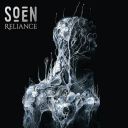
Seedów: 0
Komentarze: 0
Data dodania:
2026-01-21 19:51:39
Rozmiar: 305.59 MB
Peerów: 0
Dodał: Fallen_Angel
Opis
...SIŁA I PIĘKNO MUZYKI TKWIĄ W JEJ RÓŻNORODNOŚCI..
..::OPIS::.. Nie warto rozbierać tego albumu na czynniki pierwsze i przeprowadzać dogłębnej i szczegółowej analizy. Warto natomiast tego krążka słuchać i delektować się każdą cudowną nutą... FA After a 15 year absence, these Norwegian veterans are back with an amazing album of strong songs--so well constructed and composed as to have both spaciousness and density, great melody and harmony, uniquity and cleverness, as well as an outstanding vocalist in Kjetil Nordhus and great sound production. 1. "Leaves of Yesteryear" (8:03) opens with the metal sounds and ANATHEMA-like keyboard atmospherics we expect before shifting into a more ULVER-esque ominous spaciousness. The dominant metal riffing sounds like a cross between URIAH HEEP and OPETH. Weak chorus. Nice FLOYDian interlude in the middle. Turns full-on Death Metal at the six minute mark, but then returns to a more symphonic heavy prog style for the finish. (13/15) 2. "Sentinels" (5:42) BLACK SABBATH-like simplicity to the heavy opening, turns a speed corner at 1:10 into more modern metal style for the chorus section. Cool guitar play with syncopated chords and space in the middle before falling back into a machine gun chorus section. Clever codas here and there to transition from Sabbath section to bullet-pace and back and forth. (8.5/10) 3. "My Dark Reflections of Life and Death" (15:35) nice slow, spacious, ominous intro before everybody comes crashing in at 2:12 with an alien spacecraft synth in the lead. This switches to electric guitar in the fourth minute as the hard-driving music continues to establish itself. At 3:30, then, there's a pretty little interlude barely containing a lot of potential energy. Then Kjetil begins singing as the band comes back to full throttle. Some cool textural shifts going on beneath his singing. Everything comes to a standstill at 5:30 for some spacey synth notes before Kjetil burst into the fray with a deep tenor and the slower-paced metal chord progression accompanies him. Another standstill at 7:10 which gets filled by a distant-sounding rolling bass and then treated electric piano. Kjetil's John Wetton voice returns with some tom-tom play and piano arpeggi with the bass and synths before a nylon string guitar's up-sliding arpeggi take over. By the end of the tenth minute, the four-chord organ-led heavy metal progression and Kjetil's projecting voice return but then there is another shift into more symphonic palette for a RIVERSIDE-like guitar solo and singing section. This pattern continues, building in intensity, with both singing and instrumental sections, until 13:15 when an almost disco beat establishes to enter a full-on multi-instrumental metal onslaught in which Kjetil does not return until the final 45 seconds. Certainly a labyrinthine song. (27/30) 4. "Hounds" (10:09) great simplicity for a metal song with great melodies and other hooks (including Kjetil's strikingly-similar GREG LAKE voice). My favorite song on the album. (18/20) 5. "Solitude" (5:05) piano, acoustic guitar and gentle background keys and bass are not what you expect from one of the innovators of the metal world early 21st Century. Nice song but never really goes anywhere special. (8.5/10) Total Time 44:34 My first impression is that Kjetil Nordhus must have been taking GREG LAKE/JOHN WETTON elocution/singing lessons over the past 15 years: the similarities at times are uncanny. B+/4.5 stars; a near-masterpiece of progressive rock music--and a great comeback from these long-absent veterans. BrufordFreak ..::TRACK-LIST::.. 1. Leaves of Yesteryear 08:03 2. Sentinels 05:42 3. My Dark Reflections of Life and Death 15:35 4. Hounds 10:09 5. Solitude 05:05 ..::OBSADA::.. Vocals - Kjetil Nordhus Guitars - Terje Vik Schei Guitars - Bjørn Harstad Bass - Stein Roger Sordal Keyboards - Kenneth Silden Drums - Jonathan Alejandro Perez https://www.youtube.com/watch?v=DpNt7uAro5c SEED 15:00-22:00. POLECAM!!! 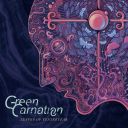
Seedów: 0
Komentarze: 0
Data dodania:
2025-12-29 12:50:55
Rozmiar: 105.64 MB
Peerów: 0
Dodał: Fallen_Angel
Opis
...SIŁA I PIĘKNO MUZYKI TKWIĄ W JEJ RÓŻNORODNOŚCI..
..::OPIS::.. Nie warto rozbierać tego albumu na czynniki pierwsze i przeprowadzać dogłębnej i szczegółowej analizy. Warto natomiast tego krążka słuchać i delektować się każdą cudowną nutą... FA After a 15 year absence, these Norwegian veterans are back with an amazing album of strong songs--so well constructed and composed as to have both spaciousness and density, great melody and harmony, uniquity and cleverness, as well as an outstanding vocalist in Kjetil Nordhus and great sound production. 1. "Leaves of Yesteryear" (8:03) opens with the metal sounds and ANATHEMA-like keyboard atmospherics we expect before shifting into a more ULVER-esque ominous spaciousness. The dominant metal riffing sounds like a cross between URIAH HEEP and OPETH. Weak chorus. Nice FLOYDian interlude in the middle. Turns full-on Death Metal at the six minute mark, but then returns to a more symphonic heavy prog style for the finish. (13/15) 2. "Sentinels" (5:42) BLACK SABBATH-like simplicity to the heavy opening, turns a speed corner at 1:10 into more modern metal style for the chorus section. Cool guitar play with syncopated chords and space in the middle before falling back into a machine gun chorus section. Clever codas here and there to transition from Sabbath section to bullet-pace and back and forth. (8.5/10) 3. "My Dark Reflections of Life and Death" (15:35) nice slow, spacious, ominous intro before everybody comes crashing in at 2:12 with an alien spacecraft synth in the lead. This switches to electric guitar in the fourth minute as the hard-driving music continues to establish itself. At 3:30, then, there's a pretty little interlude barely containing a lot of potential energy. Then Kjetil begins singing as the band comes back to full throttle. Some cool textural shifts going on beneath his singing. Everything comes to a standstill at 5:30 for some spacey synth notes before Kjetil burst into the fray with a deep tenor and the slower-paced metal chord progression accompanies him. Another standstill at 7:10 which gets filled by a distant-sounding rolling bass and then treated electric piano. Kjetil's John Wetton voice returns with some tom-tom play and piano arpeggi with the bass and synths before a nylon string guitar's up-sliding arpeggi take over. By the end of the tenth minute, the four-chord organ-led heavy metal progression and Kjetil's projecting voice return but then there is another shift into more symphonic palette for a RIVERSIDE-like guitar solo and singing section. This pattern continues, building in intensity, with both singing and instrumental sections, until 13:15 when an almost disco beat establishes to enter a full-on multi-instrumental metal onslaught in which Kjetil does not return until the final 45 seconds. Certainly a labyrinthine song. (27/30) 4. "Hounds" (10:09) great simplicity for a metal song with great melodies and other hooks (including Kjetil's strikingly-similar GREG LAKE voice). My favorite song on the album. (18/20) 5. "Solitude" (5:05) piano, acoustic guitar and gentle background keys and bass are not what you expect from one of the innovators of the metal world early 21st Century. Nice song but never really goes anywhere special. (8.5/10) Total Time 44:34 My first impression is that Kjetil Nordhus must have been taking GREG LAKE/JOHN WETTON elocution/singing lessons over the past 15 years: the similarities at times are uncanny. B+/4.5 stars; a near-masterpiece of progressive rock music--and a great comeback from these long-absent veterans. BrufordFreak ..::TRACK-LIST::.. 1. Leaves of Yesteryear 08:03 2. Sentinels 05:42 3. My Dark Reflections of Life and Death 15:35 4. Hounds 10:09 5. Solitude 05:05 ..::OBSADA::.. Vocals - Kjetil Nordhus Guitars - Terje Vik Schei Guitars - Bjørn Harstad Bass - Stein Roger Sordal Keyboards - Kenneth Silden Drums - Jonathan Alejandro Perez https://www.youtube.com/watch?v=DpNt7uAro5c SEED 15:00-22:00. POLECAM!!! 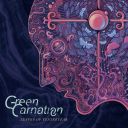
Seedów: 0
Komentarze: 0
Data dodania:
2025-12-29 12:45:49
Rozmiar: 284.58 MB
Peerów: 0
Dodał: Fallen_Angel
Opis
...SIŁA I PIĘKNO MUZYKI TKWIĄ W JEJ RÓŻNORODNOŚCI...
..::OPIS::.. Dessiderium, czyli melodic/progressive death metalowy projekt gitarzysty oraz basisty takich formacji Arkaik, Empyrrhic oraz Nullingrots – Alexa Haddada. Krążek 'Aria' ukazał się 10 grudnia 2021. Album został wydany nakładem The Artisan Era. Za nagrywanie odpowiada Alex Haddad. Perkusję zarejestrował Brody Smith. Miksami oraz masteringiem zajął się były gitarzysta zespołu Aborted – Mendel Bij De Leij. Okładkę zaprojektował Adam Burke. Na płytę trafiłem przypadkowo jak to często bywa. Urzekła mnie na poziomie, którego się nie spodziewałem, jej rozległe kompozycje całkowicie mnie pochłaniają, nawet jeśli nie do końca jeszcze ogarniam ich strukturę. Więcej czasu z Arią może przynieść głębsze zrozumienie. Mogę tylko żałować, że nie poznałem jej w momencie wydania, wtedy, w trakcie miesiąca miodowego poznalibyśmy się dogłębnie (cokolwiek to znaczy...). FA Despite the fact that Dessiderium’s been around for about a decade and has released 3 previous studio albums to date, this project flew completely under the radar for me, and it just so happens to be exactly around the area of what I like to hear most, progressive, techy and extreme. But if there’s anything a band owning those adjectives can do to grab my attention, it’s signing to The Artisan Era, and in order to release the 4th studio album “Aria”, Dessiderium did just that. As it turns out, this is a one-man project by Arkaik guitarist Alex Haddad, and with that in mind I would expect nothing but aggression and extreme technicality, but Dessiderium offers a more diverse and unexpected approach to extremity. I would probably place the sound that can be heard on “Aria” somewhere in between progressive technical death metal and melodic post-black metal, with composition style drawing much from the former while the atmosphere and emotional package seems to be more rooted in the latter. The first thing to draw any prog-nerd’s attention is the affinity for ridiculous song length, with the shortest track and first released single ‘Moon Lust Delirium’, clocking in at just over 9 minutes and all other songs going beyond the 10-minute mark. As a result, this is a 5-track one-hour long album. And the best part is, the variety in composition and evolutionary nature of the tracks makes those lengths fully worthwhile. There is no irrelevant content for the entire duration of the album. Based on the first single, hearing shrieky vocals, consistent use of blast beats and tremolo picking guitars, I expected this to reside mainly in black-metal territory, although with a modern sound and progressive tendencies. But after a stream of the full-length I was easily convinced that this project refuses genre boundaries and taps into many different faces of extreme metal, as well as some other influences. The 15-minute opener ‘White Morning in a World She Knows’ kicks off with a beautiful and ethereal clean guitar intro that takes its time adding flowery details of noodly intricate yet melodic playing. Then a gradual build-up occurs with clean vocals, groovy drums and mumbly bass seeping in, cramming more and more details before double kicks and extreme elements kick in. The actual driven guitar and screaming vocals are the last pieces to show up and complete the epic soundscape. From there on, the album goes on a rampant yet emotional journey of cathartic progressive mayhem, maintained in fluid order. The riffs go anywhere from black-metal styled tremolo picking to extensive odd-timed patterns that make it hard to recognize any sort of repetition. I feel the effect and production places the riffage in a black metal sound while the composition itself sounds rather like what you’d expect to hear from the likes of Persefone. The bass doesn’t take the tech-death path of fluidity but rather resides in the low-end rumbling while the riffs do their work. However, it gets plenty of moments to shine when the driven guitars are silenced and the clean parts take over. There are repeated moments in the album where the riffs halt and the atmosphere clears out, leaving melodic aspects like clean vocals, guitars and orchestrations to shine, and it is also in these moments that the bass parts show their most melodic and intricate side. A highlight of this sort must certainly be the blast-beat heavy yet completely riff-stripped intro to the second track ‘Pale’. We also get lead guitars, not necessarily in actual solos but rather in majestic melodies that open up the soundscape for some truly impressive cinematic moments. The drum parts, I must say, are absolutely spectacular. The amount of dynamic groove, detailed strummery and clever, playful alternation between blasting and groove that happens in this album is so clever and expressive that it makes the drums sound like an animated character. The only downside to it is that, to my knowledge, they are programmed, which is surprising given that they actually sound quite raw and natural. I guess technology keeps advancing. Vocally, I’m much more impressed by the cleans than the scream. The clean vocals have a very emotional and tender delivery, sometimes growing more intense and cathartic while the screams get pretty monotonous, laying in a typical post black shriek, although with much better pronunciation and definition. And if we’re talking vocals, we can also have a look at the lyrics and concept. While I can’t say I’m entirely sure with the lyrical content in this one, it appears to be presenting a dreamlike romance between a first-person protagonist and a woman named Aria who may or may not be real. It starts off pretty, goes delusional pretty quick, deals with despair, confusion and desire as well as potentially fake bliss and terminates with an also probably not so real death of Aria. It may just be that the entire adventure happens in a dream space rather than reality. I assume this because there’s a surreal tone to the whole thing that especially shines when pizzicato-driven orchestral soundscapes emerge or layers of hypnotic clean vocals. It’s as impressive as it is potentially confusing, and personally I love it, especially given that this is happening in an album that’s otherwise loaded with death metal and black metal extremity. So if that sort of mix sounds like something that you might be intrigued by, be sure to check out “Aria”. I tell you, it’s quite a journey. andreipianoman ..::TRACK-LIST::.. 1. White Morning in a World She Knows 15:13 2. Pale 10:59 3. Aria 13:41 4. Moon Lust Delirium 09:15 5. The Persecution Complex 11:26 ..::OBSADA::.. All music and words written and recorded by Alex Haddad Drum programming by Brody Smith Artwork by Adam Burke Mixed and mastered by Mendel Bij De Leij Music written in the years of 2013-2017 https://www.youtube.com/watch?v=mUmgrty4Fa4 SEED 15:00-22:00. POLECAM!!! 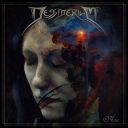
Seedów: 0
Komentarze: 0
Data dodania:
2025-12-02 19:54:16
Rozmiar: 140.54 MB
Peerów: 0
Dodał: Fallen_Angel
Opis
...SIŁA I PIĘKNO MUZYKI TKWIĄ W JEJ RÓŻNORODNOŚCI...
..::OPIS::.. Dessiderium, czyli melodic/progressive death metalowy projekt gitarzysty oraz basisty takich formacji Arkaik, Empyrrhic oraz Nullingrots – Alexa Haddada. Krążek 'Aria' ukazał się 10 grudnia 2021. Album został wydany nakładem The Artisan Era. Za nagrywanie odpowiada Alex Haddad. Perkusję zarejestrował Brody Smith. Miksami oraz masteringiem zajął się były gitarzysta zespołu Aborted – Mendel Bij De Leij. Okładkę zaprojektował Adam Burke. Na płytę trafiłem przypadkowo jak to często bywa. Urzekła mnie na poziomie, którego się nie spodziewałem, jej rozległe kompozycje całkowicie mnie pochłaniają, nawet jeśli nie do końca jeszcze ogarniam ich strukturę. Więcej czasu z Arią może przynieść głębsze zrozumienie. Mogę tylko żałować, że nie poznałem jej w momencie wydania, wtedy, w trakcie miesiąca miodowego poznalibyśmy się dogłębnie (cokolwiek to znaczy...). FA Despite the fact that Dessiderium’s been around for about a decade and has released 3 previous studio albums to date, this project flew completely under the radar for me, and it just so happens to be exactly around the area of what I like to hear most, progressive, techy and extreme. But if there’s anything a band owning those adjectives can do to grab my attention, it’s signing to The Artisan Era, and in order to release the 4th studio album “Aria”, Dessiderium did just that. As it turns out, this is a one-man project by Arkaik guitarist Alex Haddad, and with that in mind I would expect nothing but aggression and extreme technicality, but Dessiderium offers a more diverse and unexpected approach to extremity. I would probably place the sound that can be heard on “Aria” somewhere in between progressive technical death metal and melodic post-black metal, with composition style drawing much from the former while the atmosphere and emotional package seems to be more rooted in the latter. The first thing to draw any prog-nerd’s attention is the affinity for ridiculous song length, with the shortest track and first released single ‘Moon Lust Delirium’, clocking in at just over 9 minutes and all other songs going beyond the 10-minute mark. As a result, this is a 5-track one-hour long album. And the best part is, the variety in composition and evolutionary nature of the tracks makes those lengths fully worthwhile. There is no irrelevant content for the entire duration of the album. Based on the first single, hearing shrieky vocals, consistent use of blast beats and tremolo picking guitars, I expected this to reside mainly in black-metal territory, although with a modern sound and progressive tendencies. But after a stream of the full-length I was easily convinced that this project refuses genre boundaries and taps into many different faces of extreme metal, as well as some other influences. The 15-minute opener ‘White Morning in a World She Knows’ kicks off with a beautiful and ethereal clean guitar intro that takes its time adding flowery details of noodly intricate yet melodic playing. Then a gradual build-up occurs with clean vocals, groovy drums and mumbly bass seeping in, cramming more and more details before double kicks and extreme elements kick in. The actual driven guitar and screaming vocals are the last pieces to show up and complete the epic soundscape. From there on, the album goes on a rampant yet emotional journey of cathartic progressive mayhem, maintained in fluid order. The riffs go anywhere from black-metal styled tremolo picking to extensive odd-timed patterns that make it hard to recognize any sort of repetition. I feel the effect and production places the riffage in a black metal sound while the composition itself sounds rather like what you’d expect to hear from the likes of Persefone. The bass doesn’t take the tech-death path of fluidity but rather resides in the low-end rumbling while the riffs do their work. However, it gets plenty of moments to shine when the driven guitars are silenced and the clean parts take over. There are repeated moments in the album where the riffs halt and the atmosphere clears out, leaving melodic aspects like clean vocals, guitars and orchestrations to shine, and it is also in these moments that the bass parts show their most melodic and intricate side. A highlight of this sort must certainly be the blast-beat heavy yet completely riff-stripped intro to the second track ‘Pale’. We also get lead guitars, not necessarily in actual solos but rather in majestic melodies that open up the soundscape for some truly impressive cinematic moments. The drum parts, I must say, are absolutely spectacular. The amount of dynamic groove, detailed strummery and clever, playful alternation between blasting and groove that happens in this album is so clever and expressive that it makes the drums sound like an animated character. The only downside to it is that, to my knowledge, they are programmed, which is surprising given that they actually sound quite raw and natural. I guess technology keeps advancing. Vocally, I’m much more impressed by the cleans than the scream. The clean vocals have a very emotional and tender delivery, sometimes growing more intense and cathartic while the screams get pretty monotonous, laying in a typical post black shriek, although with much better pronunciation and definition. And if we’re talking vocals, we can also have a look at the lyrics and concept. While I can’t say I’m entirely sure with the lyrical content in this one, it appears to be presenting a dreamlike romance between a first-person protagonist and a woman named Aria who may or may not be real. It starts off pretty, goes delusional pretty quick, deals with despair, confusion and desire as well as potentially fake bliss and terminates with an also probably not so real death of Aria. It may just be that the entire adventure happens in a dream space rather than reality. I assume this because there’s a surreal tone to the whole thing that especially shines when pizzicato-driven orchestral soundscapes emerge or layers of hypnotic clean vocals. It’s as impressive as it is potentially confusing, and personally I love it, especially given that this is happening in an album that’s otherwise loaded with death metal and black metal extremity. So if that sort of mix sounds like something that you might be intrigued by, be sure to check out “Aria”. I tell you, it’s quite a journey. andreipianoman ..::TRACK-LIST::.. 1. White Morning in a World She Knows 15:13 2. Pale 10:59 3. Aria 13:41 4. Moon Lust Delirium 09:15 5. The Persecution Complex 11:26 ..::OBSADA::.. All music and words written and recorded by Alex Haddad Drum programming by Brody Smith Artwork by Adam Burke Mixed and mastered by Mendel Bij De Leij Music written in the years of 2013-2017 https://www.youtube.com/watch?v=mUmgrty4Fa4 SEED 15:00-22:00. POLECAM!!! 
Seedów: 0
Komentarze: 0
Data dodania:
2025-12-02 19:49:50
Rozmiar: 463.61 MB
Peerów: 0
Dodał: Fallen_Angel
Opis
...SIŁA I PIĘKNO MUZYKI TKWIĄ W JEJ RÓŻNORODNOŚCI...
..::OPIS::.. Nowy album Tenebris, jednego z najbardziej oryginalnych polskich zespołów metalowych. Założony w Łodzi w 1991 roku, zespół zaczynał jako przedstawiciel death metalu, by szybko włączyć do swojego brzmienia wpływy muzyki progresywnej a nawet elementy jazzu. Tekstowo nowa płyta to koncept na powstanie którego olbrzymi wpływ miała książka Joanny Salomon "Latarka Gombrowicza". Kochanowski w interpretacji Tenebris, to zdecydowanie nie ten sam twórca, co prezentowany podczas lekcji szkolnych. Jego pisma to celowo skonstruowany labirynt, oparty na pitagorejskiej filozofii liczb. Szlachcic-poeta spod lipy, przeistacza się w kogoś, studiującego i praktykującego coś, co kiedyś i dziś nazywa się magią. Idea odrodzenia Kochanowskiego jako wieszcza, który przewyższa nawet Mickiewicza, stała się bardzo bliska zespołowi, stąd bezkompromisowy tytuł albumu. Okładka płyty, będąca adaptacją szkicu Jana Matejki przedstawiającym jego wizję Jana Kochanowskiego, dodatkowo wspiera tę narrację. Sugeruje ona, że popularne postacie historyczne są często spłaszczane w masowym postrzeganiu, a za ich wizerunkiem kryje się o wiele więcej nieoczekiwanych historii. Na płycie pojawiają się również goście specjalni: Maciej Pasiński (ex-Sirrah, obecnie Pincer Consotrium) w chórkach, wspaniały klarnecista jazzowy Paweł Szamburski oraz Sylwia Levy. Wydawca Kurcze, nigdy nie byłem ich fanem. Pewnie dlatego, że w 1994 roku, kiedy wydawali swój debiut, to na świecie rozszalała się już na dobre black metalowa zawierucha więc kolejny death metalowy album jakiejś kapeli z Polski mało mnie wtedy obchodził. Ja jebie, nawet nie wiedziałem, że nadal Tenebris istnieje, a tu nagle pojawia się w mojej skrzynce ich najnowszy materiał. Nie byłem zbytnio zadowolony tym faktem, bo raczej stronię od progresywnych wygibasów i sam z siebie po takowe nie sięgam, chyba że z recenzyjnego obowiązku. Z tego też powodu zabrałem się za przesłuchanie „Kochanowskiego”, który przerażał mnie ilością utworów, gdyż ma ich dziesięć, lecz pocieszałem się faktem, że na szczęście trwają one „po staremu” i razem oferują nieco ponad czterdzieści minut muzyki. Pierwsze chwile były ciężkie, ponieważ zestawienie śpiewanych tekstów Jana Kochanowskiego, Juliusza Słowackiego i Adama Mickiewicza z awangardowo zagranym metalem, brzmiało po prostu głupio. Jednakże z każdą następną minutą wrażenie to traciło na sile, aż w końcu ustąpiło. Poddając się w pełni muzyce, zatopiłem się w niej głęboko, ponieważ o dziwo wciągnęła mnie swoim, polskim patosem, którego na co dzień nie znoszę. Tym razem musiałem skapitulować, ponieważ „Kochanowski” wessał mnie do swego świata, który wypełniony jest po brzegi zaskakującymi aranżacjami. Wypchany po brzegi, że aż trzeszczą szwy, zmianami tempa, mocy riffów, wirtuozerskich popisów i formami ocierającymi się o improwizację. To akordy uderzające z różnym natężeniem, układające się w wielowarstwowe tekstury, a na poszczególnych ich płaszczyznach dzieje się naprawdę dużo, windując emocje dość wysoko. Uczucia związane z romantyzmem polskim tutaj kipią przez całą długość tego krążka, zwłaszcza że wspomniane liryki doskonale zespolone są z linią instrumentów, tworząc chwytający za gardło spektakl, w którym modernistyczne zabiegi mieszają się z gęstymi i ciężkimi, death metalowymi riffami, technicznymi zawijasami i jazzowymi wariacjami. Soczyste gitary i „mosiężna” sekcja rytmiczna wspierane są przez syntezatorowe tła, a w zamykającym ten album „Szmaragdowym Somnambuliku” pojawiają się również klarnety. „Kochanowski” niesie ze sobą złożoną muzykę o nieliniowej konstrukcji, w której agresja miksuje się z melancholią i słowiańskim mistycyzmem. W warstwie wokalnej jest tutaj równie zróżnicowanie, bo śpiew Siwego Jaszy, który trafnie intonuje słowa, doskonale momentami wspierają growle gościnnie występującego w nagraniach Macieja Pasińskiego i chórki Sylwii Levy w ósmym „Kreonie”. Płyta nie dla każdego, ponieważ może odstraszać nieszablonową melodyką i niestabilną rytmiką oraz silnym pierwiastkiem poetycznym, który nie do wszystkich będzie potrafił dotrzeć. Polecam, bo to kawał bardzo dobrej i inteligentnie skomponowanej muzy, a jej polska duchowość posiada w tym przypadku odpowiedni charakter. shub niggurath Brand new studio album from one of Poland's most original and long-running metal bands - Tenebris. Formed in Łódź, Poland in 1991, they began as a death metal act before incorporating progressive and even jazz influences into their sound, being extremely hard to categorize as under just one metal genre. The album title references the iconic Polish XVI century poet, visioner and magician, Jan Kochanowski. His works are shown here as a deliberate labyrinth based on Pythagorean numerology, which in turn was derived from Hermes Trismegistus. This new perspective transformed Kochanowski from a simple, pastoral poet into a practitioner of what might be called magical arts. The idea of Kochanowski as a prophet figure, transcending even Mickiewicz, became central to the album's unapologetic title. ..::TRACK-LIST::.. 1. Kochanowski 2. Kosy 3. Popiel 4. Sarmacya 5. Perunowy 6. Duch 7. Wolarz 8. Kreon 9. Wieleci 10. Szmaragdowy somnambulik The songs 'Popiel' and 'Perunowy' are fragments of Juliusz Słowacki's work, Król Duch. 'Sarmacya' is part of Jan Kochanowski's Porporzec, and the end of 'Wolarz' is a piece from Adam Mickiewicz's Dziady. ..::OBSADA::.. Siwy Jaszy - guitar, vocals, lyrics Przemysław Dominiak - guitar, FX, keyboards Grzegorz Graczyk - drums, samples Bartek Polniak - bass Guests: Maciej Pasiński - backing vocals, growls on 'Kochanowski' and 'Perunowy' Sylwia Levy - backing vocals on 'Kreon' Paweł Szamburski - clarinets on 'Szmaragdowy Somnambulik' https://www.youtube.com/watch?v=PmAbOextE80 SEED 15:00-22:00. POLECAM!!! 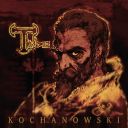
Seedów: 0
Komentarze: 0
Data dodania:
2025-11-16 16:33:33
Rozmiar: 99.24 MB
Peerów: 0
Dodał: Fallen_Angel
Opis
...SIŁA I PIĘKNO MUZYKI TKWIĄ W JEJ RÓŻNORODNOŚCI...
..::OPIS::.. Nowy album Tenebris, jednego z najbardziej oryginalnych polskich zespołów metalowych. Założony w Łodzi w 1991 roku, zespół zaczynał jako przedstawiciel death metalu, by szybko włączyć do swojego brzmienia wpływy muzyki progresywnej a nawet elementy jazzu. Tekstowo nowa płyta to koncept na powstanie którego olbrzymi wpływ miała książka Joanny Salomon "Latarka Gombrowicza". Kochanowski w interpretacji Tenebris, to zdecydowanie nie ten sam twórca, co prezentowany podczas lekcji szkolnych. Jego pisma to celowo skonstruowany labirynt, oparty na pitagorejskiej filozofii liczb. Szlachcic-poeta spod lipy, przeistacza się w kogoś, studiującego i praktykującego coś, co kiedyś i dziś nazywa się magią. Idea odrodzenia Kochanowskiego jako wieszcza, który przewyższa nawet Mickiewicza, stała się bardzo bliska zespołowi, stąd bezkompromisowy tytuł albumu. Okładka płyty, będąca adaptacją szkicu Jana Matejki przedstawiającym jego wizję Jana Kochanowskiego, dodatkowo wspiera tę narrację. Sugeruje ona, że popularne postacie historyczne są często spłaszczane w masowym postrzeganiu, a za ich wizerunkiem kryje się o wiele więcej nieoczekiwanych historii. Na płycie pojawiają się również goście specjalni: Maciej Pasiński (ex-Sirrah, obecnie Pincer Consotrium) w chórkach, wspaniały klarnecista jazzowy Paweł Szamburski oraz Sylwia Levy. Wydawca Kurcze, nigdy nie byłem ich fanem. Pewnie dlatego, że w 1994 roku, kiedy wydawali swój debiut, to na świecie rozszalała się już na dobre black metalowa zawierucha więc kolejny death metalowy album jakiejś kapeli z Polski mało mnie wtedy obchodził. Ja jebie, nawet nie wiedziałem, że nadal Tenebris istnieje, a tu nagle pojawia się w mojej skrzynce ich najnowszy materiał. Nie byłem zbytnio zadowolony tym faktem, bo raczej stronię od progresywnych wygibasów i sam z siebie po takowe nie sięgam, chyba że z recenzyjnego obowiązku. Z tego też powodu zabrałem się za przesłuchanie „Kochanowskiego”, który przerażał mnie ilością utworów, gdyż ma ich dziesięć, lecz pocieszałem się faktem, że na szczęście trwają one „po staremu” i razem oferują nieco ponad czterdzieści minut muzyki. Pierwsze chwile były ciężkie, ponieważ zestawienie śpiewanych tekstów Jana Kochanowskiego, Juliusza Słowackiego i Adama Mickiewicza z awangardowo zagranym metalem, brzmiało po prostu głupio. Jednakże z każdą następną minutą wrażenie to traciło na sile, aż w końcu ustąpiło. Poddając się w pełni muzyce, zatopiłem się w niej głęboko, ponieważ o dziwo wciągnęła mnie swoim, polskim patosem, którego na co dzień nie znoszę. Tym razem musiałem skapitulować, ponieważ „Kochanowski” wessał mnie do swego świata, który wypełniony jest po brzegi zaskakującymi aranżacjami. Wypchany po brzegi, że aż trzeszczą szwy, zmianami tempa, mocy riffów, wirtuozerskich popisów i formami ocierającymi się o improwizację. To akordy uderzające z różnym natężeniem, układające się w wielowarstwowe tekstury, a na poszczególnych ich płaszczyznach dzieje się naprawdę dużo, windując emocje dość wysoko. Uczucia związane z romantyzmem polskim tutaj kipią przez całą długość tego krążka, zwłaszcza że wspomniane liryki doskonale zespolone są z linią instrumentów, tworząc chwytający za gardło spektakl, w którym modernistyczne zabiegi mieszają się z gęstymi i ciężkimi, death metalowymi riffami, technicznymi zawijasami i jazzowymi wariacjami. Soczyste gitary i „mosiężna” sekcja rytmiczna wspierane są przez syntezatorowe tła, a w zamykającym ten album „Szmaragdowym Somnambuliku” pojawiają się również klarnety. „Kochanowski” niesie ze sobą złożoną muzykę o nieliniowej konstrukcji, w której agresja miksuje się z melancholią i słowiańskim mistycyzmem. W warstwie wokalnej jest tutaj równie zróżnicowanie, bo śpiew Siwego Jaszy, który trafnie intonuje słowa, doskonale momentami wspierają growle gościnnie występującego w nagraniach Macieja Pasińskiego i chórki Sylwii Levy w ósmym „Kreonie”. Płyta nie dla każdego, ponieważ może odstraszać nieszablonową melodyką i niestabilną rytmiką oraz silnym pierwiastkiem poetycznym, który nie do wszystkich będzie potrafił dotrzeć. Polecam, bo to kawał bardzo dobrej i inteligentnie skomponowanej muzy, a jej polska duchowość posiada w tym przypadku odpowiedni charakter. shub niggurath Brand new studio album from one of Poland's most original and long-running metal bands - Tenebris. Formed in Łódź, Poland in 1991, they began as a death metal act before incorporating progressive and even jazz influences into their sound, being extremely hard to categorize as under just one metal genre. The album title references the iconic Polish XVI century poet, visioner and magician, Jan Kochanowski. His works are shown here as a deliberate labyrinth based on Pythagorean numerology, which in turn was derived from Hermes Trismegistus. This new perspective transformed Kochanowski from a simple, pastoral poet into a practitioner of what might be called magical arts. The idea of Kochanowski as a prophet figure, transcending even Mickiewicz, became central to the album's unapologetic title. ..::TRACK-LIST::.. 1. Kochanowski 2. Kosy 3. Popiel 4. Sarmacya 5. Perunowy 6. Duch 7. Wolarz 8. Kreon 9. Wieleci 10. Szmaragdowy somnambulik The songs 'Popiel' and 'Perunowy' are fragments of Juliusz Słowacki's work, Król Duch. 'Sarmacya' is part of Jan Kochanowski's Porporzec, and the end of 'Wolarz' is a piece from Adam Mickiewicz's Dziady. ..::OBSADA::.. Siwy Jaszy - guitar, vocals, lyrics Przemysław Dominiak - guitar, FX, keyboards Grzegorz Graczyk - drums, samples Bartek Polniak - bass Guests: Maciej Pasiński - backing vocals, growls on 'Kochanowski' and 'Perunowy' Sylwia Levy - backing vocals on 'Kreon' Paweł Szamburski - clarinets on 'Szmaragdowy Somnambulik' https://www.youtube.com/watch?v=PmAbOextE80 SEED 15:00-22:00. POLECAM!!! 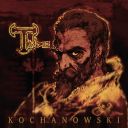
Seedów: 0
Komentarze: 0
Data dodania:
2025-11-16 16:29:33
Rozmiar: 310.95 MB
Peerów: 0
Dodał: Fallen_Angel
Opis
...SIŁA I PIĘKNO MUZYKI TKWIĄ W JEJ RÓŻNORODNOŚCI...
..::OPIS::.. This compilation contains many interesting gems for fans of Dream Theater's early days, particularly the period leading up to the creation of their 1992 masterpiece Images and Words. It includes early instrumental demos of well-known songs such as 'Metropolis' and 'Learning to Live', as well as audition tapes from the long two year period when the band didn’t have a vocalist, until they finally found James LaBrie, who helped shape their sound. One of the most interesting tracks in this compilation is the early demo of 'A Change of Seasons'. This song was initially supposed to be recorded in 1992 for Images and Words, but it was eventually released three years later on a separate EP, in a much better version than the one presented here. The first thing you'll notice is that the length of this track is 6 minutes shorter than its final version (which clocks in at 23 minutes!). After that, you'll realize how many changes the song underwent from this early version to its final release. Unlike the official version, this demo starts without the well-known acoustic intro and jumps straight into some claustrophobic, piercing guitar riffs, accompanied by synth strings. Then there's a familiar riff from the final version that makes me wonder how much of the song’s final form was written by Kevin Moore (the former keyboardist who plays in this demo but left before the final version of the song was released in 1995). While this 17-minute-long track is still quite epic, with an enormous amount of interesting guitar riffs and hypnotizing keyboard layers, it's clear that the final version is much more polished. The lyrics, written by drummer Mike Portnoy and based on his personal life, are mostly similar to the final version but lack some of its edge. Chris Cintron, who sings on this recording, has a nice voice when staying in his middle range, but when he starts singing in his upper register, his timbre becomes somewhat whiny, which can be irritating to hear. It's an epic track with tons of instrumental sections, tempo changes, and dynamic variation, but it's still very raw. While it’s interesting to hear if you're already familiar with the final version, the vocals detract from an otherwise not fully developed song with tons of potential. The 1991 ATCO demos with James LaBrie are absolutely amazing, with 'To Live Forever' being the most interesting, as it was never officially released on any of the band's albums. It starts with a hypnotizing clean guitar riff that sets a very spiritual tone for the song. Then LaBrie joins in with his angelic clean voice, delivering a great performance for the emotionally deep and philosophical lyrics that may or may not make you reflect on your life and the world around you. There are some amazing guitar solos by John Petrucci throughout the song—very melodic and uplifting—and with the atmospheric keyboard harmonies of Kevin Moore, they reach even greater heights. It's a wonderful song with fantastic lyrics and an addictive atmosphere. I also really liked the 1991 demo of 'Take the Time'. It has a lively, fast tempo, an excellent groove, and LaBrie's vocal delivery is almost perfect. The chorus is very catchy, and the verses feature different vocal melodies and background instrumentation, making the song constantly engaging—there's not a dull moment. The instrumental section before the outro may be one of Dream Theater's best instrumental moments in their career. The synth solo by Kevin Moore is jaw-dropping; it's very melodic and dynamic, showcasing some fast shred abilities, but in the right measure. This is one of Dream Theater's greatest hits, and the demo recorded here is full of energy and liveliness. If you've never heard 'Images and Words' or the final version of 'A Change of Seasons' before, I suggest familiarizing yourself with them first before diving into this compilation. It works best if you're already familiar with the final versions of the songs, as you can then go back in time and hear how they were initially created and performed, when the band members were much younger and perhaps more 'hungry.' This compilation is highly recommended for any Dream Theater fan, offering some interesting performances and arrangements, as well as for prog metal fans in general who enjoy music that is as innovative and epic as possible. Human666 ..::TRACK-LIST::.. CD 1: Instrumental Demos 1989-1991 1. Metropolis 2. Take The Time 3. Learning To Live 4. Under A Glass Moon Vocalist Audition Demos 1990 5. Don't Look Past Me (Vocals-John Hendricks) 6. To Live Forever (Vocals-John Hendricks) 7. To Live Forever (Vocals-Steve Stone) 8. A Change Of Seasons (Vocals-Chris Cintron) CD 2: The ATCO Demos 1991 1. Metropolis 2. To Live Forever 3. Take The Time Pre-Production Demos 1991 4. Pull Me Under 5. Another Day 6. Surrounded 7. Under A Glass Moon 8. Wait For Sleep 9. Learning To Live 10. Oliver's Twist ..::OBSADA::.. James LaBrie - Vocals John Petrucci - Guitar Kevin Moore - Keyboards John Myung - Bass Mike Portnoy - Drums https://www.youtube.com/watch?v=YgbJ_v18t4Q SEED 15:00-22:00. POLECAM!!! 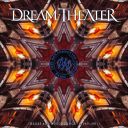
Seedów: 0
Komentarze: 0
Data dodania:
2025-11-06 16:40:06
Rozmiar: 336.39 MB
Peerów: 0
Dodał: Fallen_Angel
Opis
...SIŁA I PIĘKNO MUZYKI TKWIĄ W JEJ RÓŻNORODNOŚCI...
..::OPIS::.. This compilation contains many interesting gems for fans of Dream Theater's early days, particularly the period leading up to the creation of their 1992 masterpiece Images and Words. It includes early instrumental demos of well-known songs such as 'Metropolis' and 'Learning to Live', as well as audition tapes from the long two year period when the band didn’t have a vocalist, until they finally found James LaBrie, who helped shape their sound. One of the most interesting tracks in this compilation is the early demo of 'A Change of Seasons'. This song was initially supposed to be recorded in 1992 for Images and Words, but it was eventually released three years later on a separate EP, in a much better version than the one presented here. The first thing you'll notice is that the length of this track is 6 minutes shorter than its final version (which clocks in at 23 minutes!). After that, you'll realize how many changes the song underwent from this early version to its final release. Unlike the official version, this demo starts without the well-known acoustic intro and jumps straight into some claustrophobic, piercing guitar riffs, accompanied by synth strings. Then there's a familiar riff from the final version that makes me wonder how much of the song’s final form was written by Kevin Moore (the former keyboardist who plays in this demo but left before the final version of the song was released in 1995). While this 17-minute-long track is still quite epic, with an enormous amount of interesting guitar riffs and hypnotizing keyboard layers, it's clear that the final version is much more polished. The lyrics, written by drummer Mike Portnoy and based on his personal life, are mostly similar to the final version but lack some of its edge. Chris Cintron, who sings on this recording, has a nice voice when staying in his middle range, but when he starts singing in his upper register, his timbre becomes somewhat whiny, which can be irritating to hear. It's an epic track with tons of instrumental sections, tempo changes, and dynamic variation, but it's still very raw. While it’s interesting to hear if you're already familiar with the final version, the vocals detract from an otherwise not fully developed song with tons of potential. The 1991 ATCO demos with James LaBrie are absolutely amazing, with 'To Live Forever' being the most interesting, as it was never officially released on any of the band's albums. It starts with a hypnotizing clean guitar riff that sets a very spiritual tone for the song. Then LaBrie joins in with his angelic clean voice, delivering a great performance for the emotionally deep and philosophical lyrics that may or may not make you reflect on your life and the world around you. There are some amazing guitar solos by John Petrucci throughout the song—very melodic and uplifting—and with the atmospheric keyboard harmonies of Kevin Moore, they reach even greater heights. It's a wonderful song with fantastic lyrics and an addictive atmosphere. I also really liked the 1991 demo of 'Take the Time'. It has a lively, fast tempo, an excellent groove, and LaBrie's vocal delivery is almost perfect. The chorus is very catchy, and the verses feature different vocal melodies and background instrumentation, making the song constantly engaging—there's not a dull moment. The instrumental section before the outro may be one of Dream Theater's best instrumental moments in their career. The synth solo by Kevin Moore is jaw-dropping; it's very melodic and dynamic, showcasing some fast shred abilities, but in the right measure. This is one of Dream Theater's greatest hits, and the demo recorded here is full of energy and liveliness. If you've never heard 'Images and Words' or the final version of 'A Change of Seasons' before, I suggest familiarizing yourself with them first before diving into this compilation. It works best if you're already familiar with the final versions of the songs, as you can then go back in time and hear how they were initially created and performed, when the band members were much younger and perhaps more 'hungry.' This compilation is highly recommended for any Dream Theater fan, offering some interesting performances and arrangements, as well as for prog metal fans in general who enjoy music that is as innovative and epic as possible. Human666 ..::TRACK-LIST::.. CD 1: Instrumental Demos 1989-1991 1. Metropolis 2. Take The Time 3. Learning To Live 4. Under A Glass Moon Vocalist Audition Demos 1990 5. Don't Look Past Me (Vocals-John Hendricks) 6. To Live Forever (Vocals-John Hendricks) 7. To Live Forever (Vocals-Steve Stone) 8. A Change Of Seasons (Vocals-Chris Cintron) CD 2: The ATCO Demos 1991 1. Metropolis 2. To Live Forever 3. Take The Time Pre-Production Demos 1991 4. Pull Me Under 5. Another Day 6. Surrounded 7. Under A Glass Moon 8. Wait For Sleep 9. Learning To Live 10. Oliver's Twist ..::OBSADA::.. James LaBrie - Vocals John Petrucci - Guitar Kevin Moore - Keyboards John Myung - Bass Mike Portnoy - Drums https://www.youtube.com/watch?v=YgbJ_v18t4Q SEED 15:00-22:00. POLECAM!!! 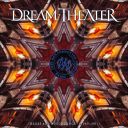
Seedów: 0
Komentarze: 0
Data dodania:
2025-11-06 16:35:21
Rozmiar: 1.03 GB
Peerów: 0
Dodał: Fallen_Angel
Opis
...SIŁA I PIĘKNO MUZYKI TKWIĄ W JEJ RÓŻNORODNOŚCI...
..::OPIS::.. W całym projekcie jest dużo ciężkiego brzmienia, sporo eterycznego i ambientowego, trochę doomu i akurat tyle poweru i progresywnego metalu, ile potrzeba. Muzyka jest fenomenalna, kompozycje precyzyjnie napisane z ogromną dbałością o szczegóły. Muzyka jest spleciona z precyzją i polotem, które niewielu kompozytorów potrafi opanować, a niewielu muzyków potrafi grać z takim talentem. STAR ONE absolutnie zmiażdżył wszystkich tym albumem. ..::TRACK-LIST::.. CD 1: 1. Fate Of Man 5:29 Guitar [Solo] – Michael Romeo Lead Vocals, Backing Vocals – Brittney Slayes 2. 28 Days (Till The End Of Time) 7:21 Guitar [Solos] – Timo Somers Lead Vocals – Sir Russell Allen 3. Prescient 6:34 Lead Vocals, Backing Vocals – Michael Mills, Ross Jennings 4. Back From The Past 4:50 Guitar [Solo] – Ron Bumblefoot Thal Lead Vocals – Jeff Scott Soto 5. Revel In Time 4:38 Guitar [Solos] – Adrian Vandenberg Lead Vocals – Brandon Yeagley 6. The Year Of '41 6:20 Guitar [Solo] – Joel Hoekstra Lead Vocals – Joe Lynn Turner Synthesizer [Solo] – Jens Johansson Vocals [Vocalization] – Will Shaw 7. Bridge Of Life 5:14 Lead Vocals – Damian Wilson 8. Today Is Yesterday 5:46 Guitar [Solo] – Marcel Singor Lead Vocals – Dan Swanö Synthesizer [Moog] – Lisa Bella Donna 9. A Hand On The Clock 5:52 Lead Vocals, Backing Vocals – Floor Jansen Organ [Hammond Solo] – Joost van den Broek 10. Beyond The Edge Of It All 4:52 Guitar [Solo] – Arjen Lucassen Lead Vocals – John Jaycee Cuijpers 11. Lost Children Of The Universe 9:46 Choir – Hellscore Choir Guitar [Solo] – Steve Vai Lead Vocals – Roy Khan CD 2 - Same Songs, Different Singers: 1. Fate Of Man 5:29 Lead Vocals, Backing Vocals – Marcela Bovio 2. 28 Days (Till The End Of Time) 7:21 Lead Vocals – John Jaycee Cuijpers 3. Prescient 6:34 Lead Vocals, Backing Vocals – Will Shaw 4. Back From The Past 4:50 Lead Vocals – John Jaycee Cuijpers 5. Revel In Time 4:38 Lead Vocals – John Jaycee Cuijpers 6. The Year Of '41 6:20 Lead Vocals, Synth [Solo] – Alessandro Del Vecchio 7. Bridge Of Life 5:14 Lead Vocals – Wilmer Waarbroek 8. Today Is Yesterday 5:46 Lead Vocals – Arjen Lucassen 9. A Hand On The Clock 5:52 Lead Vocals, Backing Vocals – Irene Jansen, Marcela Bovio 10. Beyond The Edge Of It All 4:52 Lead Vocals – Mike Andersson 11. Lost Children Of The Universe 9:46 Lead Vocals – Tony Martin CD 3 - Instrumental Versions Of All Songs: 1. Fate Of Man 5:29 2. 28 Days (Till The End Of Time) 7:21 3. Prescient 6:34 4. Back From The Past 4:50 5. Revel In Time 4:38 6. The Year Of '41 6:20 7. Bridge Of Life 5:14 8. Today Is Yesterday 5:46 9. A Hand On The Clock 5:52 10. Beyond The Edge Of It All 4:52 11. Lost Children Of The Universe 9:46 ..::OBSADA::.. Drums - Ed Warby Guitar [Guitars], Bass, Keyboards - Arjen Lucassen Backing Vocals - Irene Jansen, Marcela Bovio Conductor [Hellscore Choir] - Noa Gruman https://www.youtube.com/watch?v=-fHN4Qceip4 SEED 15:00-22:00. POLECAM!!! 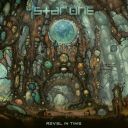
Seedów: 0
Komentarze: 0
Data dodania:
2025-10-06 15:56:40
Rozmiar: 1.35 GB
Peerów: 0
Dodał: Fallen_Angel
Opis
...SIŁA I PIĘKNO MUZYKI TKWIĄ W JEJ RÓŻNORODNOŚCI...
..::OPIS::.. Za nagrywanie oraz produkcję odpowiadają Eve oraz Yuma Van Eekelen. Masteringiem zajął się Dereck Blackburn w Quiethouse Recording. Okładkę oraz layout stworzył Travis Smith (Amorphis, King Diamond, Cynic). Kilka słów o albumie: „Tetradōm” to debiutancki album instrumentalnego, progresywnego kwartetu metal-fusion QUADVIUM, w połowie w Kalifornii, w połowie w Holandii, założonego pod koniec 2019 roku przez amerykańskiego basistę Steve’a Di Giorgio (Testament, Death) i holenderskiego basistę Jeroena Paula Thesselinga (Obscura, Pestilence). Steve Di Giorgio i Jeroen Paul Thesseling są innowatorami w przenoszeniu innego stylu gry na bezprogowym basie do metalu. Założenie zespołu z dwoma głównie wielostrunowymi bezprogowymi basistami nie jest częstym zjawiskiem, a duet basowy uznał, że musi poświęcić bardzo specjalny i rozważny czas, aby uzyskać odpowiednie dopasowanie do uczestników i jaki będzie końcowy efekt – co oznacza odpowiednie brzmienie i kompozycję, aby przedstawić tę rzadką wizję. Z czasem, wraz z holenderskim mistrzem perkusji Yumą van Eekelenem (Our Oceans, Pestilence) i amerykańską wirtuozerką gitary/kompozytorką Eve (Myth Of I, Kaathe) – których wkład i doświadczenie odgrywają ogromną rolę w QUADVIUM – muzyka zaczęła nabierać kształtu. Skład jest dokładnie taką mieszanką, która łączy delikatną równowagę tak ciężkiej oferty dźwiękowej i pełnego słownictwa utworów o wysokim poziomie konstrukcji. 'Mieliśmy zamiar wiele, wiele lat temu stworzyć razem muzykę… aby zaprezentować dwóch głównie wielostrunowych basistów bezprogowych grających w formie duetu”, komentują basiści QUADVIUM Steve i Jeroen. „To znaczy, ani «bas rytmiczny i bas prowadzący», ani bałagan z gorącymi solówkami. Ale łatwiej powiedzieć niż zrobić! Podczas gdy spędzaliśmy czas, wymieniliśmy się przemyśleniami na temat tego, jak to byłoby utworzyć grupę, która wspierałaby nasze basowe potrzeby. Wtedy był to po prostu spontaniczny pomysł, ale przez lata temat ten był poruszany raz po raz. Ta wizja była w najlepszym razie niewyraźna i zajęło nam dużo czasu, aby nie tylko wyobrazić sobie, jak w ten sposób zaprezentować bas, ale co ważniejsze — kto podzieliłby się z nami tą koncepcją. Yuma jest starym znajomym i na szczęście dla nas, potrzebował tego projektu, aby dodać go do swojej listy tysiąca innych! Ale mając perkusistę, który rozumiał, że 2 basistów wypełni spektrum dźwiękowe, był niezrażony wnoszeniem kręgosłupa, a także trzymaniem naszych dziwacznych pomysłów w ryzach. Po długich poszukiwaniach kolejnego muzyka, kopalnia złota została odkryta na Instagram reels o imieniu Eve. Jedne z najbardziej szalonych filmów z gitarą (i basem!), jakie kiedykolwiek widzieliśmy, zainspirowały nas do zadania pytania jeśli był to projekt warty dołączenia… nie tylko mieliśmy na pokładzie naszego ostatniego członka, ale także geniusza studia i głównego kompozytora tej strategii, którą mieliśmy tak dawno temu, który zebrał wszystko do kupy i skupił wszystko na albumie, którym z dumą możemy się z wami teraz podzielić. Dziękujemy za solidne wsparcie Agonia Records za wsparcie naszego marzenia i uczynienie tego albumu rzeczywistością! Fani instrumentalnego progresywnego metalu fusion – i bezprogowego basu! – z pewnością pokochają te muzyczne podróże.' "Tetradōm" is the debut album of the instrumental progressive metal-fusion quartet QUADVIUM, half in California - half in the Netherlands, founded in late 2019 by American bass player Steve Di Giorgio (Testament, Death) and Dutch bass player Jeroen Paul Thesseling (Obscura, Pestilence). Steve Di Giorgio and Jeroen Paul Thesseling are both innovators in bringing a different style of fretless bass playing to metal. Launching a band with two predominantly multi-string fretless bass players is no common occurrence, and the bass-duo felt they needed to take very special and deliberate time to get the right alignment with who is participating and what will be the end result - meaning the right sound and composition to represent this rare vision. Over time, together with Dutch master drummer Yuma van Eekelen (Our Oceans, Pestilence) and American guitar virtuoso/composer Eve (Myth Of I, Kaathe) - whose contribution and expertise play a huge part of QUADVIUM - the music began to take shape. The line-up is just the right blend to mix the delicate balance of such a heavy aural offering and a full vocabulary of high level constructed pieces. “We had an intention many many years ago to make some music together… to feature two predominately multistring fretless bass players playing in duet form," QUADVIUM bassists Steve and Jeroen comment. "That is to say, neither being «rhythm bass & lead bass» nor some trading off hot solo licks mess. But easier said than done! While hanging out, we exchanged some thoughts about how it would be to form a group to support our bass-ic needs. At that time it was just a spontaneous idea, but over the years the topic was brought up again and again. This vision was blurry at best and it took us a long time to not only imagine how to feature the bass in this way, but more importantly – who would share in this concept with us. Yuma is an old acquaintance and lucky for us, he needed this project to add to his list of a thousand others! But having a drummer that understood that 2 bass players would be filling the sonic spectrum, he was undaunted in contributing the backbone as well as keeping our outlandish ideas in check. After a long search for the next musician, a gold mine was found on Instagram reels by the name of Eve. Some of the most insane guitar (and bass!) videos we ever saw inspired us to ask if this was a project worth joining… not only did we have our final member aboard, but a studio genius and the main composer of this strategy we had so long ago, who brought it all together and focused everything into the album we are so proud to share with you now. Thanks to the solid support from Agonia Records for supporting our dream and making this album a reality! Fans of instrumental progressive metal fusion – and fretless bass! – will surely enjoy these musical journeys.” "Tetradōm" was recorded and produced by Eve and co-produced by Yuma van Eekelen. The album was mastered by Dereck Blackburn at Quiethouse Recording. Travis Smith (Amorphis, King Diamond, Cynic) created the album's artwork and layout. ..::TRACK-LIST::.. 1. Moksha 06:08 2. Náströnd 03:57 3. Apophis 05:54 4. Ghardus 05:12 5. Adhyasa 04:18 6. Sarab 04:35 7. Eidolon 05:30 ..::OBSADA::.. Steve DiGiorgio - Bass (fretless 5-string) Jeroen Paul Thesseling - Bass (fretless 7-string) Yuma van Eekelen - Drums Eve Smith - Guitars, Synth Guitars https://www.youtube.com/watch?v=bBW-071hJu8 Ponieważ wiem, iż bywają problemy z pobraniem moich wstawek bardzo proszę osoby, którym się to udało o udostępnianie innym użytkownikom. Nie zachowujcie się jak pisowsko-konfederackie ścierwa... Przekaz POLSKI, nie lewacki... ***** *** i konfederacje!!! W 1989 roku dostaliśmy ogromną szansę wyjścia z ruskiej dupy... Nie dajmy się znowu tam wcisnąć!!! SEED 15:00-22:00. POLECAM!!! 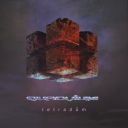
Seedów: 0
Komentarze: 0
Data dodania:
2025-09-15 19:16:13
Rozmiar: 83.97 MB
Peerów: 0
Dodał: Fallen_Angel
Opis
...SIŁA I PIĘKNO MUZYKI TKWIĄ W JEJ RÓŻNORODNOŚCI...
..::OPIS::.. Za nagrywanie oraz produkcję odpowiadają Eve oraz Yuma Van Eekelen. Masteringiem zajął się Dereck Blackburn w Quiethouse Recording. Okładkę oraz layout stworzył Travis Smith (Amorphis, King Diamond, Cynic). Kilka słów o albumie: „Tetradōm” to debiutancki album instrumentalnego, progresywnego kwartetu metal-fusion QUADVIUM, w połowie w Kalifornii, w połowie w Holandii, założonego pod koniec 2019 roku przez amerykańskiego basistę Steve’a Di Giorgio (Testament, Death) i holenderskiego basistę Jeroena Paula Thesselinga (Obscura, Pestilence). Steve Di Giorgio i Jeroen Paul Thesseling są innowatorami w przenoszeniu innego stylu gry na bezprogowym basie do metalu. Założenie zespołu z dwoma głównie wielostrunowymi bezprogowymi basistami nie jest częstym zjawiskiem, a duet basowy uznał, że musi poświęcić bardzo specjalny i rozważny czas, aby uzyskać odpowiednie dopasowanie do uczestników i jaki będzie końcowy efekt – co oznacza odpowiednie brzmienie i kompozycję, aby przedstawić tę rzadką wizję. Z czasem, wraz z holenderskim mistrzem perkusji Yumą van Eekelenem (Our Oceans, Pestilence) i amerykańską wirtuozerką gitary/kompozytorką Eve (Myth Of I, Kaathe) – których wkład i doświadczenie odgrywają ogromną rolę w QUADVIUM – muzyka zaczęła nabierać kształtu. Skład jest dokładnie taką mieszanką, która łączy delikatną równowagę tak ciężkiej oferty dźwiękowej i pełnego słownictwa utworów o wysokim poziomie konstrukcji. 'Mieliśmy zamiar wiele, wiele lat temu stworzyć razem muzykę… aby zaprezentować dwóch głównie wielostrunowych basistów bezprogowych grających w formie duetu”, komentują basiści QUADVIUM Steve i Jeroen. „To znaczy, ani «bas rytmiczny i bas prowadzący», ani bałagan z gorącymi solówkami. Ale łatwiej powiedzieć niż zrobić! Podczas gdy spędzaliśmy czas, wymieniliśmy się przemyśleniami na temat tego, jak to byłoby utworzyć grupę, która wspierałaby nasze basowe potrzeby. Wtedy był to po prostu spontaniczny pomysł, ale przez lata temat ten był poruszany raz po raz. Ta wizja była w najlepszym razie niewyraźna i zajęło nam dużo czasu, aby nie tylko wyobrazić sobie, jak w ten sposób zaprezentować bas, ale co ważniejsze — kto podzieliłby się z nami tą koncepcją. Yuma jest starym znajomym i na szczęście dla nas, potrzebował tego projektu, aby dodać go do swojej listy tysiąca innych! Ale mając perkusistę, który rozumiał, że 2 basistów wypełni spektrum dźwiękowe, był niezrażony wnoszeniem kręgosłupa, a także trzymaniem naszych dziwacznych pomysłów w ryzach. Po długich poszukiwaniach kolejnego muzyka, kopalnia złota została odkryta na Instagram reels o imieniu Eve. Jedne z najbardziej szalonych filmów z gitarą (i basem!), jakie kiedykolwiek widzieliśmy, zainspirowały nas do zadania pytania jeśli był to projekt warty dołączenia… nie tylko mieliśmy na pokładzie naszego ostatniego członka, ale także geniusza studia i głównego kompozytora tej strategii, którą mieliśmy tak dawno temu, który zebrał wszystko do kupy i skupił wszystko na albumie, którym z dumą możemy się z wami teraz podzielić. Dziękujemy za solidne wsparcie Agonia Records za wsparcie naszego marzenia i uczynienie tego albumu rzeczywistością! Fani instrumentalnego progresywnego metalu fusion – i bezprogowego basu! – z pewnością pokochają te muzyczne podróże.' "Tetradōm" is the debut album of the instrumental progressive metal-fusion quartet QUADVIUM, half in California - half in the Netherlands, founded in late 2019 by American bass player Steve Di Giorgio (Testament, Death) and Dutch bass player Jeroen Paul Thesseling (Obscura, Pestilence). Steve Di Giorgio and Jeroen Paul Thesseling are both innovators in bringing a different style of fretless bass playing to metal. Launching a band with two predominantly multi-string fretless bass players is no common occurrence, and the bass-duo felt they needed to take very special and deliberate time to get the right alignment with who is participating and what will be the end result - meaning the right sound and composition to represent this rare vision. Over time, together with Dutch master drummer Yuma van Eekelen (Our Oceans, Pestilence) and American guitar virtuoso/composer Eve (Myth Of I, Kaathe) - whose contribution and expertise play a huge part of QUADVIUM - the music began to take shape. The line-up is just the right blend to mix the delicate balance of such a heavy aural offering and a full vocabulary of high level constructed pieces. “We had an intention many many years ago to make some music together… to feature two predominately multistring fretless bass players playing in duet form," QUADVIUM bassists Steve and Jeroen comment. "That is to say, neither being «rhythm bass & lead bass» nor some trading off hot solo licks mess. But easier said than done! While hanging out, we exchanged some thoughts about how it would be to form a group to support our bass-ic needs. At that time it was just a spontaneous idea, but over the years the topic was brought up again and again. This vision was blurry at best and it took us a long time to not only imagine how to feature the bass in this way, but more importantly – who would share in this concept with us. Yuma is an old acquaintance and lucky for us, he needed this project to add to his list of a thousand others! But having a drummer that understood that 2 bass players would be filling the sonic spectrum, he was undaunted in contributing the backbone as well as keeping our outlandish ideas in check. After a long search for the next musician, a gold mine was found on Instagram reels by the name of Eve. Some of the most insane guitar (and bass!) videos we ever saw inspired us to ask if this was a project worth joining… not only did we have our final member aboard, but a studio genius and the main composer of this strategy we had so long ago, who brought it all together and focused everything into the album we are so proud to share with you now. Thanks to the solid support from Agonia Records for supporting our dream and making this album a reality! Fans of instrumental progressive metal fusion – and fretless bass! – will surely enjoy these musical journeys.” "Tetradōm" was recorded and produced by Eve and co-produced by Yuma van Eekelen. The album was mastered by Dereck Blackburn at Quiethouse Recording. Travis Smith (Amorphis, King Diamond, Cynic) created the album's artwork and layout. ..::TRACK-LIST::.. 1. Moksha 06:08 2. Náströnd 03:57 3. Apophis 05:54 4. Ghardus 05:12 5. Adhyasa 04:18 6. Sarab 04:35 7. Eidolon 05:30 ..::OBSADA::.. Steve DiGiorgio - Bass (fretless 5-string) Jeroen Paul Thesseling - Bass (fretless 7-string) Yuma van Eekelen - Drums Eve Smith - Guitars, Synth Guitars https://www.youtube.com/watch?v=bBW-071hJu8 Ponieważ wiem, iż bywają problemy z pobraniem moich wstawek bardzo proszę osoby, którym się to udało o udostępnianie innym użytkownikom. Nie zachowujcie się jak pisowsko-konfederackie ścierwa... Przekaz POLSKI, nie lewacki... ***** *** i konfederacje!!! W 1989 roku dostaliśmy ogromną szansę wyjścia z ruskiej dupy... Nie dajmy się znowu tam wcisnąć!!! SEED 15:00-22:00. POLECAM!!! 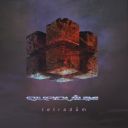
Seedów: 0
Komentarze: 0
Data dodania:
2025-09-15 19:11:59
Rozmiar: 258.54 MB
Peerów: 0
Dodał: Fallen_Angel
Opis
...SIŁA I PIĘKNO MUZYKI TKWIĄ W JEJ RÓŻNORODNOŚCI...
..::OPIS::.. Kolejna odsłona serii Lost Not Forgotten Archives: 'Live at Madison Square Garden (2010)' to nagrania z koncertu w Nowym Jorku z 2010 r., gdy Dream Tehater supportowali Iron Maiden. ..::TRACK-LIST::.. 1. As I Am 07:29 2. A Rite Of Passage 08:31 3. Act II, Scene Six: Home 11:14 4. Constant Motion 06:49 5. Panic Attack 07:10 6. Pull Me Under 08:33 ..::OBSADA::.. James LaBrie - Vocals John Petrucci - Guitar Jordan Rudess - Keyboards John Myung - Bass Mike Portnoy - Drums https://www.youtube.com/watch?v=-iA7WZnsjh8 SEED 15:00-22:00. POLECAM!!! 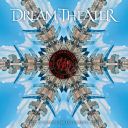
Seedów: 0
Komentarze: 0
Data dodania:
2025-08-18 18:06:02
Rozmiar: 117.75 MB
Peerów: 0
Dodał: Fallen_Angel
Opis
...SIŁA I PIĘKNO MUZYKI TKWIĄ W JEJ RÓŻNORODNOŚCI...
..::OPIS::.. Kolejna odsłona serii Lost Not Forgotten Archives: 'Live at Madison Square Garden (2010)' to nagrania z koncertu w Nowym Jorku z 2010 r., gdy Dream Tehater supportowali Iron Maiden. ..::TRACK-LIST::.. 1. As I Am 07:29 2. A Rite Of Passage 08:31 3. Act II, Scene Six: Home 11:14 4. Constant Motion 06:49 5. Panic Attack 07:10 6. Pull Me Under 08:33 ..::OBSADA::.. James LaBrie - Vocals John Petrucci - Guitar Jordan Rudess - Keyboards John Myung - Bass Mike Portnoy - Drums https://www.youtube.com/watch?v=-iA7WZnsjh8 SEED 15:00-22:00. POLECAM!!! 
Seedów: 0
Komentarze: 0
Data dodania:
2025-08-18 18:02:42
Rozmiar: 343.66 MB
Peerów: 0
Dodał: Fallen_Angel
Opis
...SIŁA I PIĘKNO MUZYKI TKWIĄ W JEJ RÓŻNORODNOŚCI
..::OPIS::.. Kolejna część niepublikowanego wcześniej materiału z serii "Lost Not Forgotten Archives". Na albumie "Distance Over Time Demos (2018)" znalazły się utwory z sesji nagraniowej do ich czternastego studyjnego krążka. A brand-new, previously unreleased entry finds its way into the Lost Not Forgotten Archives. 'Distance Over Time Demos (2018)' documents the writing sessions for Dream Theater’s fourteenth studio album at Yonderbarn in New York, the secluded studio where the band convened for the creation of this much-acclaimed album. Presented here in the original order in which the tracks were written and recorded, this release gives a fascinating glimpse into how that record was constructed. ..::TRACK-LIST::.. 1. Song 01 (At Wit's End) 09:12 2. Song 02 (Paralyzed) 04:24 3. Song 03 (Out Of Reach) 04:04 4. Song 04 (Untethered Angel) 06:19 5. Song 05 (Room 137) 04:10 6. Song 06 (Fall Into The Light) 07:05 7. Song 07 (Barstool Warrior) 06:40 8. Song 08 (Viper King) 04:01 9. Song 09 (Pale Blue Dot) 08:18 10. Song 10 (S2N) 06:21 ..::OBSADA::.. James LaBrie - Vocals John Petrucci - Guitar Jordan Rudess - Keyboards John Myung - Bass Mike Mangini - Drums https://www.youtube.com/watch?v=2z8b0WBJQT0 SEED 15:00-22:00. POLECAM!!! 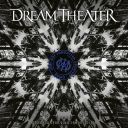
Seedów: 0
Komentarze: 0
Data dodania:
2025-08-05 16:20:14
Rozmiar: 142.01 MB
Peerów: 0
Dodał: Fallen_Angel
Opis
...SIŁA I PIĘKNO MUZYKI TKWIĄ W JEJ RÓŻNORODNOŚCI
..::OPIS::.. Kolejna część niepublikowanego wcześniej materiału z serii "Lost Not Forgotten Archives". Na albumie "Distance Over Time Demos (2018)" znalazły się utwory z sesji nagraniowej do ich czternastego studyjnego krążka. A brand-new, previously unreleased entry finds its way into the Lost Not Forgotten Archives. 'Distance Over Time Demos (2018)' documents the writing sessions for Dream Theater’s fourteenth studio album at Yonderbarn in New York, the secluded studio where the band convened for the creation of this much-acclaimed album. Presented here in the original order in which the tracks were written and recorded, this release gives a fascinating glimpse into how that record was constructed. ..::TRACK-LIST::.. 1. Song 01 (At Wit's End) 09:12 2. Song 02 (Paralyzed) 04:24 3. Song 03 (Out Of Reach) 04:04 4. Song 04 (Untethered Angel) 06:19 5. Song 05 (Room 137) 04:10 6. Song 06 (Fall Into The Light) 07:05 7. Song 07 (Barstool Warrior) 06:40 8. Song 08 (Viper King) 04:01 9. Song 09 (Pale Blue Dot) 08:18 10. Song 10 (S2N) 06:21 ..::OBSADA::.. James LaBrie - Vocals John Petrucci - Guitar Jordan Rudess - Keyboards John Myung - Bass Mike Mangini - Drums https://www.youtube.com/watch?v=2z8b0WBJQT0 SEED 15:00-22:00. POLECAM!!! 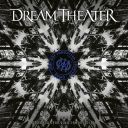
Seedów: 0
Komentarze: 0
Data dodania:
2025-08-05 16:10:10
Rozmiar: 448.06 MB
Peerów: 0
Dodał: Fallen_Angel
Opis
...SIŁA I PIĘKNO MUZYKI TKWIĄ W JEJ RÓŻNORODNOŚCI
..::OPIS::.. Aż trudno uwierzyć, że krążek ten ma już 40 lat. Jeszcze większe zaskoczenie budzi fakt, że dla większości metalowców kapela ta stanowi zagadkę nie mniejszą niż 2+2*2=6 dla współczesnej młodzieży gimnazjalnej. W obu przypadkach sprawa rozbija się, niestety, o znajomość podstaw. Matematyką zajmował się tutaj nie zamierzam (pierwszeństwo mnożenia, kretyni!), kilka słów mogę jednak napisać o tej, jakże niesamowitej, płycie. W czasach, kiedy znaczna większość metalowców dopiero dopieszczała swoje talenty muzyczne, kwartet z Austin jebnął tak niesamowitą porcją dźwięków, że niektórzy do dziś mają napuchnięte uszy. I nie ma w tym ani odrobiny przesady, bo w swoich czasach, a nawet dzisiaj, poziom umiejętności muzyków oraz zaawansowanie techniczne materiału bije na łeb znakomitą większość produkcji muzycznych. Potworna szkoda, że Watchtower przez wiele, wiele lat nie znalazł swoich naśladowców, choć może właśnie przez ową kompleksowość nikt nie garnął się do podjęcia rękawicy. Z drugiej strony, wiele z tego, co można znaleźć w muzyce takich sław jak Cynic, Death, Atheist bądź Spiral Architect wzięło jednak swój początek właśnie z twórczości Watchtower. I jeśli miałbym jednak wskazać, która kapela postanowiła zmierzyć się z geniuszem Watchtower, to wskazałbym właśnie kwintet z Norwegii. Tyle tylko, że od czasu „A Sceptic’s Universe” Spiral Architect nie nagrali nic, a Twisted into Form — odprysk od Spirali — nie prezentuje się tak dobrze, choć nadal może się podobać. Wygląda na to, że jeśli Watchtower sam nie zadba o swoje dziedzictwo, nie zrobi tego nikt inny. Na szczęście singiel z 2010 daje nadzieje na coś równie dobrego, jak Energetic Disassembly. I na tym skończyłbym część zapoznawczą, czas w kilku słowach opisać, z czym tak właściwie Watchtower się je. Główną osią Energetic Disassembly jest średnio szybki, niezbyt agresywny thrash, który poddano jednak obróbce polegającej na połamaniu struktur, wielokrotnych zmianach tempa i intensywności oraz starannemu wyodrębnieniu instrumentów. Już samo to sprawia, że muzyka nabiera wielu cech jazzowego free-stylu. Fanom łamigłówek i wysiłku intelektualnego, tego rodzaju zabieg sprawi niebywałą radość i da sposobność zagłębienia się w najciemniejsze zakamarki aranżacyjnych potworków. Pochodną takiego stylu jest także dość intensywne poczucie pustki, co wynika zapewne z umiejętności muzyków, którzy nie muszą nadrabiać braków hałasem. Jeśli nie znakiem rozpoznawczym, to na pewno pewną wizytówką jest organiczny w brzmieniu, plumkający bas, który mimo tego, iż nie jest na pierwszym planie, wyraźnie odciska piętno na muzyce. Z drugiej strony są operujące w wysokich rejestrach, dość mocno przesterowane gitary. Po tej samej stronie spektrum stoi wokal – wysoki, wrzaskliwy, wwiercający się w ucho, przypominający nieco skrzyżowanie Randy’ego Rampage’a z Mikem Sandersem. Wysoko i skrzekliwie. O tym, że muzyka jest skomplikowana i zmienna już wspomniałem, a niemałe zasługi na tym polu ma pałker, który najwidoczniej założył się z kimś o to, że nie będzie grał schematami. Zakład oczywiście wygrał i swojego pączka zjadł. Tak się w skrócie można zaprezentować debiut Amerykanów. Czy warto? Nie – trzeba, bo wstyd. deaf And progressive metal was born. I remember the first time I listened to this it was truly something else, the over the top high pitched vocals, the great riffs, evey different instrument being shred to bits, the technologically paranoid lyrics, the blistering technicality (which was all but unheard of at the time). Energetic disassembly?, truly energetic music. Once again the musicians are fantastic, Billy white on guitars pulls out some magical riffs and his solos are very interesting - not to mention the guy shreds. Jason McMaster on vocals is an acquired taste, the over the top high pitched hair metal shrill isn't for everyone - once I gave it a chance though I actually started to like it - a lot. The drums are the highlight of the musicianship here, extremely varied and interesting I always have a great deal of respect for drummers who are capable of producing intense technical metal drumming without the use of double kick (that isn't to say I don't love double kick) Rick Colaluca does so much more than hold the band together he pretty much dictates every song. Unfortunately while the bass is extremely competent it isn't terribly prominent and that brings me on to the next point - the production. I'm a big fan of 80's metal production but even so the production is very rough, the guitars are very far down in the mix (besides the solos) and it's hard to perceive much aside from the drums and the vocals which is kind of a shame and I think it would have been better with real drums as opposed to electronic drums. Every track on this album is a gem, they all have some great bit that you'll want to listen to over and over again, though there are some standouts and early on meltdown is probably the best song on the album in my opinion. The main riff is great, perfect mix of musicality and technicality, the lyrics here really entertain me, talk of geiger counters, waste disposal, radiation sickness and it's capped off with a blistering solo. Energetic disassembly the title track is another highlight with a masterful drum driven middle section. When I first listened to this I didn't even know it was the first progressive metal album ever and it blew me away when I did, this stuff is more progressive and technical than most progressive metal released today and that is an amazing achievement. Highly recommended to fans of 80's metal especially thrash and fans of progressive metal who want to explore the genre's roots. FruMp ..::TRACK-LIST::.. CD 1 - Restored Original Version: 1. Violent Change 3:26 2. Asylum 3:50 3. Tyrants In Distress 6:01 4. Social Fears 4:43 5. Energetic Disassembly 4:41 6. Argonne Forest 4:40 7. Cimmerian Shadows 6:38 8. Meltdown 3:59 CD 2 - Remix Version: 1. Asylum 3:51 2. Meltdown 4:01 3. Tyrants 6:10 4. Argonne Forest 5:23 5. Energetic Disassembly 4:38 6. BW115 1:15 7. Violent Change 3:23 8. Rick On Parade 1:58 9. Social Fears 4:41 10. Cimmerian Shadows 6:36 11. Instruments Of Random Murder 3:57 12. The Eldritch 3:14 ..::OBSADA::.. Jason McMaster - vocals Billy White - guitars Doug Keyser - bass Rick Colaluca - drums https://www.youtube.com/watch?v=Da8y2qbDByM SEED 15:00-22:00. POLECAM!!! 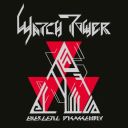
Seedów: 0
Komentarze: 0
Data dodania:
2025-07-31 18:42:15
Rozmiar: 201.48 MB
Peerów: 0
Dodał: Fallen_Angel
Opis
...SIŁA I PIĘKNO MUZYKI TKWIĄ W JEJ RÓŻNORODNOŚCI
..::OPIS::.. Aż trudno uwierzyć, że krążek ten ma już 40 lat. Jeszcze większe zaskoczenie budzi fakt, że dla większości metalowców kapela ta stanowi zagadkę nie mniejszą niż 2+2*2=6 dla współczesnej młodzieży gimnazjalnej. W obu przypadkach sprawa rozbija się, niestety, o znajomość podstaw. Matematyką zajmował się tutaj nie zamierzam (pierwszeństwo mnożenia, kretyni!), kilka słów mogę jednak napisać o tej, jakże niesamowitej, płycie. W czasach, kiedy znaczna większość metalowców dopiero dopieszczała swoje talenty muzyczne, kwartet z Austin jebnął tak niesamowitą porcją dźwięków, że niektórzy do dziś mają napuchnięte uszy. I nie ma w tym ani odrobiny przesady, bo w swoich czasach, a nawet dzisiaj, poziom umiejętności muzyków oraz zaawansowanie techniczne materiału bije na łeb znakomitą większość produkcji muzycznych. Potworna szkoda, że Watchtower przez wiele, wiele lat nie znalazł swoich naśladowców, choć może właśnie przez ową kompleksowość nikt nie garnął się do podjęcia rękawicy. Z drugiej strony, wiele z tego, co można znaleźć w muzyce takich sław jak Cynic, Death, Atheist bądź Spiral Architect wzięło jednak swój początek właśnie z twórczości Watchtower. I jeśli miałbym jednak wskazać, która kapela postanowiła zmierzyć się z geniuszem Watchtower, to wskazałbym właśnie kwintet z Norwegii. Tyle tylko, że od czasu „A Sceptic’s Universe” Spiral Architect nie nagrali nic, a Twisted into Form — odprysk od Spirali — nie prezentuje się tak dobrze, choć nadal może się podobać. Wygląda na to, że jeśli Watchtower sam nie zadba o swoje dziedzictwo, nie zrobi tego nikt inny. Na szczęście singiel z 2010 daje nadzieje na coś równie dobrego, jak Energetic Disassembly. I na tym skończyłbym część zapoznawczą, czas w kilku słowach opisać, z czym tak właściwie Watchtower się je. Główną osią Energetic Disassembly jest średnio szybki, niezbyt agresywny thrash, który poddano jednak obróbce polegającej na połamaniu struktur, wielokrotnych zmianach tempa i intensywności oraz starannemu wyodrębnieniu instrumentów. Już samo to sprawia, że muzyka nabiera wielu cech jazzowego free-stylu. Fanom łamigłówek i wysiłku intelektualnego, tego rodzaju zabieg sprawi niebywałą radość i da sposobność zagłębienia się w najciemniejsze zakamarki aranżacyjnych potworków. Pochodną takiego stylu jest także dość intensywne poczucie pustki, co wynika zapewne z umiejętności muzyków, którzy nie muszą nadrabiać braków hałasem. Jeśli nie znakiem rozpoznawczym, to na pewno pewną wizytówką jest organiczny w brzmieniu, plumkający bas, który mimo tego, iż nie jest na pierwszym planie, wyraźnie odciska piętno na muzyce. Z drugiej strony są operujące w wysokich rejestrach, dość mocno przesterowane gitary. Po tej samej stronie spektrum stoi wokal – wysoki, wrzaskliwy, wwiercający się w ucho, przypominający nieco skrzyżowanie Randy’ego Rampage’a z Mikem Sandersem. Wysoko i skrzekliwie. O tym, że muzyka jest skomplikowana i zmienna już wspomniałem, a niemałe zasługi na tym polu ma pałker, który najwidoczniej założył się z kimś o to, że nie będzie grał schematami. Zakład oczywiście wygrał i swojego pączka zjadł. Tak się w skrócie można zaprezentować debiut Amerykanów. Czy warto? Nie – trzeba, bo wstyd. deaf And progressive metal was born. I remember the first time I listened to this it was truly something else, the over the top high pitched vocals, the great riffs, evey different instrument being shred to bits, the technologically paranoid lyrics, the blistering technicality (which was all but unheard of at the time). Energetic disassembly?, truly energetic music. Once again the musicians are fantastic, Billy white on guitars pulls out some magical riffs and his solos are very interesting - not to mention the guy shreds. Jason McMaster on vocals is an acquired taste, the over the top high pitched hair metal shrill isn't for everyone - once I gave it a chance though I actually started to like it - a lot. The drums are the highlight of the musicianship here, extremely varied and interesting I always have a great deal of respect for drummers who are capable of producing intense technical metal drumming without the use of double kick (that isn't to say I don't love double kick) Rick Colaluca does so much more than hold the band together he pretty much dictates every song. Unfortunately while the bass is extremely competent it isn't terribly prominent and that brings me on to the next point - the production. I'm a big fan of 80's metal production but even so the production is very rough, the guitars are very far down in the mix (besides the solos) and it's hard to perceive much aside from the drums and the vocals which is kind of a shame and I think it would have been better with real drums as opposed to electronic drums. Every track on this album is a gem, they all have some great bit that you'll want to listen to over and over again, though there are some standouts and early on meltdown is probably the best song on the album in my opinion. The main riff is great, perfect mix of musicality and technicality, the lyrics here really entertain me, talk of geiger counters, waste disposal, radiation sickness and it's capped off with a blistering solo. Energetic disassembly the title track is another highlight with a masterful drum driven middle section. When I first listened to this I didn't even know it was the first progressive metal album ever and it blew me away when I did, this stuff is more progressive and technical than most progressive metal released today and that is an amazing achievement. Highly recommended to fans of 80's metal especially thrash and fans of progressive metal who want to explore the genre's roots. FruMp ..::TRACK-LIST::.. CD 1 - Restored Original Version: 1. Violent Change 3:26 2. Asylum 3:50 3. Tyrants In Distress 6:01 4. Social Fears 4:43 5. Energetic Disassembly 4:41 6. Argonne Forest 4:40 7. Cimmerian Shadows 6:38 8. Meltdown 3:59 CD 2 - Remix Version: 1. Asylum 3:51 2. Meltdown 4:01 3. Tyrants 6:10 4. Argonne Forest 5:23 5. Energetic Disassembly 4:38 6. BW115 1:15 7. Violent Change 3:23 8. Rick On Parade 1:58 9. Social Fears 4:41 10. Cimmerian Shadows 6:36 11. Instruments Of Random Murder 3:57 12. The Eldritch 3:14 ..::OBSADA::.. Jason McMaster - vocals Billy White - guitars Doug Keyser - bass Rick Colaluca - drums https://www.youtube.com/watch?v=Da8y2qbDByM SEED 15:00-22:00. POLECAM!!! 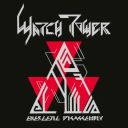
Seedów: 0
Komentarze: 0
Data dodania:
2025-07-31 18:02:21
Rozmiar: 621.76 MB
Peerów: 0
Dodał: Fallen_Angel
Opis
...SIŁA I PIĘKNO MUZYKI TKWIĄ W JEJ RÓŻNORODNOŚCI
..::OPIS::.. Tribute band - zespół muzyczny, którego działalność polega na odtwarzaniu muzyki innej istniejącej wcześniej lub współczesnej grupy rockowej. Grupy te starają się odtworzyć muzykę oraz sceniczne przedstawienia oryginalnych grup z możliwie jak największą wiernością. Niekiedy udaje się im osiągnąć taką doskonałość, iż ich muzyka jest nierozróżnialna od oryginalnej (cytat za Wikipedią). Nieżyjący już profesor Białostocki w swoim znakomitym artykule Innowacja i repetycja podjął jakże celne spostrzeżenia na temat oryginalności w sztuce. Kolejna wizyta Teatru Marzeń (lub BPM – Bogów Progresywnego Metalu) w Polsce za nami. Jak to zwykle ze mną bywa, koncert stał się przyczynkiem do zaopatrzenie się we wszelakiej maści płytowe dobra. Tak, nie ukrywam, że na Dream Theater mogę wydać sporo, a moja pasja zbieractwa projektów, dziwnych płyt i wydawnictw związanych z zespołem to dla wielu lekkie skrzywienie ;). Jak już kiedyś pisałam w moich recenzenckich bajdurzeniach, Dream Theater to zespół, który zagra wszystko (nawet książkę telefoniczną Nowego Jorku). Seria cover series wydawana przez Ytsejam Records to kawał dobrej, solidnej roboty. Za relatywnie niewielkie pieniądze klient otrzymuje sporo dobrej muzyki. Owszem malkontenci mogą powiedzieć: „po jaką cholerę Portnoy wydaje każde „pierdnięcie” zespołu?”. Ha, jakoś nie mam z powodu tego drimowego rogu obfitości żadnych gastrycznych niedogodnień. Ba – słuchanie tych bootlegów sprawia mi frajdę. Naprawdę. Tym bardziej, że ostatnie propozycje DT należą do perełek Ytsejam Records. Dziś na przysłowiowej „tapecie” drimowa próba zmierzenia się z klasyką koncertowego grania, czyli Made in Japan Deep Purple. W mojej recenzji Live At Budokan napisałam, że dla wielu zespołów, w tym i dla Dream Theater, MiJ to niedościgły wzorzec idealnego albumu koncertowego. I nadal tak twierdzę. Jest to explicite koncertowej ekspresji. Made in Japan Purpli mogę słuchać o każdej porze dnia i nocy. Zawsze i wszędzie. Po prostu wstyd nie znać. Kamień milowy rocka, klasyka gatunku – jak zwał, tak zwał. Znajomość każdego dźwięku obowiązkowa. Nie znasz, nie orientujesz się – twój problem. Tracisz wiele. Jak to tematu podeszli muzycy Dream Theater? Z pietyzmem. Łudząca podobna okładka albumu (bawimy się w grę pt: znajdź pięć szczegółów, którymi się różnią te dwa obrazki) i jakże klasyczne wykonanie. Powiedziałabym ZNAKOMITE. Mniej w tych wokalno-instrumentalnych popisach typowego Teatru Marzeń, więcej klasycznego, purpurowego rocka. Oj tak, te dwa japońskie koncerty DT (13 i 15 stycznia 2006) z pewnością przejdą do annałów wykonywania coverów. Słuchając drimowej wersji Made in Japan pomyślałam sobie: do cholery, słuchanie DT z płyt to ciekawe doświadczenie, ale koncerty to już żywioł puszczony na całość. Bez ograniczeń. Panowie pojechali po całości! Wymietli! Czasami coś niecoś od siebie dodali, czasami skrócili. Całość brzmi wręcz wybornie! Po pierwsze – muzykom DT udało się uchwycić ten purpurowy klimat i nie zepsuć efektu całości. Po drugie podczas tych dwóch japońskich koncertów panowie byli w świetnej formie. James LaBrie znakomicie wczuł się w role Iana Gillana. Powiedziałabym, że wręcz wznosi się na szczyty swoich wokalnych umiejętności (brawa za Strange Kind of Woman z taaakim wydzierem!). Nie udało mu się zepsuć swoim charakterystycznym śpiewem oraz wycieczkom w „wysokie rejestry” żadnego kawałka. Cudowna słodycz w Child in Time (chociaż wersja Gillanowska jest nie do pobicia), Smoke On The Water zaśpiewane bardzo zadziornie i ten feeling w Lazy! Brawa, brawa! Po trzecie: improwizują chłopaki na całego. Z tych nagrań wręcz bije radość, zabawa i spontan (posłuchajcie Lazy i Space Truckin’).Grają bez kunktatorstwa, na wielkim luzie, a już klawiszowe harce Jordana Rudessa – cud, miód, malina! Szlachetne brzmienie Hammonda, przepiękne solówki, odrobina Bacha (nie Chopina).Grane tak, od niechcenia przez czarodzieja klawiszy. W samych superlatywach można określić grę Petrucciego. Owszem, słychać jego nieposkromione ciągoty do grania wydłużonych solówek, ale…tym razem to uchodzi. Ogniste solo w Highway Star wynagradza wszystko (Re-we-lac-ja!). A Portnoy? – jego solo w The Mule całkiem, całkiem. W ogóle bębnił wówczas bardzo stylowo, mniej siłowo, grał z takim szlachetnym umiarkowaniem (co „żelaznemu Mike’owi” zdarza się rzadko). W ogóle to, jak zwykle w przypadku cover series, głęboki ukłon zespołu w stronę klasyków rocka. Owszem, można zadać sobie pytanie: po co panowie grają covery? No jak to po co? Dla zabawy. A, że grają je w sposób wręcz nieziemski i niedostępny dla większości śmiertelników ( -; D). Bez wątpienia najlepszy cover/tribute band na świecie. Hats off... Wydawnictwo ma również walor edukacyjny. Wielu młodych słuchaczy progresywnego metalu NIE ZNA klasyki rocka. Może dzięki takim płytom sięgną oni po oryginalne nagrania? PS. Panowie do miksowania albumu zaprosili Rogera Glovera. Efekt, jak na official bootleg jest bardzo zadowalający. Lothien ..::TRACK-LIST::.. Recorded Live at NHK Hall - Osaka, Japan - January 15th 2006 1. Highway Star 8:10 2. Child In Time 11:41 3. Smoke On The Water 7:51 4. The Mule 8:06 5. Strange Kind Of Woman 9:56 6. Lazy 13:27 7. Space Truckin' 19:09 ..::OBSADA::.. Vocals - James LaBrie Guitar - John Petrucci Keyboards - Jordan Rudess Bass - John Myung Drums, Vocals - Mike Portnoy https://www.youtube.com/watch?v=oUyA3azwOqk SEED 15:00-22:00. POLECAM!!! 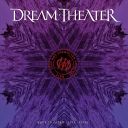
Seedów: 0
Komentarze: 0
Data dodania:
2025-07-27 15:31:52
Rozmiar: 183.36 MB
Peerów: 0
Dodał: Fallen_Angel
Opis
...SIŁA I PIĘKNO MUZYKI TKWIĄ W JEJ RÓŻNORODNOŚCI
..::OPIS::.. Tribute band - zespół muzyczny, którego działalność polega na odtwarzaniu muzyki innej istniejącej wcześniej lub współczesnej grupy rockowej. Grupy te starają się odtworzyć muzykę oraz sceniczne przedstawienia oryginalnych grup z możliwie jak największą wiernością. Niekiedy udaje się im osiągnąć taką doskonałość, iż ich muzyka jest nierozróżnialna od oryginalnej (cytat za Wikipedią). Nieżyjący już profesor Białostocki w swoim znakomitym artykule Innowacja i repetycja podjął jakże celne spostrzeżenia na temat oryginalności w sztuce. Kolejna wizyta Teatru Marzeń (lub BPM – Bogów Progresywnego Metalu) w Polsce za nami. Jak to zwykle ze mną bywa, koncert stał się przyczynkiem do zaopatrzenie się we wszelakiej maści płytowe dobra. Tak, nie ukrywam, że na Dream Theater mogę wydać sporo, a moja pasja zbieractwa projektów, dziwnych płyt i wydawnictw związanych z zespołem to dla wielu lekkie skrzywienie ;). Jak już kiedyś pisałam w moich recenzenckich bajdurzeniach, Dream Theater to zespół, który zagra wszystko (nawet książkę telefoniczną Nowego Jorku). Seria cover series wydawana przez Ytsejam Records to kawał dobrej, solidnej roboty. Za relatywnie niewielkie pieniądze klient otrzymuje sporo dobrej muzyki. Owszem malkontenci mogą powiedzieć: „po jaką cholerę Portnoy wydaje każde „pierdnięcie” zespołu?”. Ha, jakoś nie mam z powodu tego drimowego rogu obfitości żadnych gastrycznych niedogodnień. Ba – słuchanie tych bootlegów sprawia mi frajdę. Naprawdę. Tym bardziej, że ostatnie propozycje DT należą do perełek Ytsejam Records. Dziś na przysłowiowej „tapecie” drimowa próba zmierzenia się z klasyką koncertowego grania, czyli Made in Japan Deep Purple. W mojej recenzji Live At Budokan napisałam, że dla wielu zespołów, w tym i dla Dream Theater, MiJ to niedościgły wzorzec idealnego albumu koncertowego. I nadal tak twierdzę. Jest to explicite koncertowej ekspresji. Made in Japan Purpli mogę słuchać o każdej porze dnia i nocy. Zawsze i wszędzie. Po prostu wstyd nie znać. Kamień milowy rocka, klasyka gatunku – jak zwał, tak zwał. Znajomość każdego dźwięku obowiązkowa. Nie znasz, nie orientujesz się – twój problem. Tracisz wiele. Jak to tematu podeszli muzycy Dream Theater? Z pietyzmem. Łudząca podobna okładka albumu (bawimy się w grę pt: znajdź pięć szczegółów, którymi się różnią te dwa obrazki) i jakże klasyczne wykonanie. Powiedziałabym ZNAKOMITE. Mniej w tych wokalno-instrumentalnych popisach typowego Teatru Marzeń, więcej klasycznego, purpurowego rocka. Oj tak, te dwa japońskie koncerty DT (13 i 15 stycznia 2006) z pewnością przejdą do annałów wykonywania coverów. Słuchając drimowej wersji Made in Japan pomyślałam sobie: do cholery, słuchanie DT z płyt to ciekawe doświadczenie, ale koncerty to już żywioł puszczony na całość. Bez ograniczeń. Panowie pojechali po całości! Wymietli! Czasami coś niecoś od siebie dodali, czasami skrócili. Całość brzmi wręcz wybornie! Po pierwsze – muzykom DT udało się uchwycić ten purpurowy klimat i nie zepsuć efektu całości. Po drugie podczas tych dwóch japońskich koncertów panowie byli w świetnej formie. James LaBrie znakomicie wczuł się w role Iana Gillana. Powiedziałabym, że wręcz wznosi się na szczyty swoich wokalnych umiejętności (brawa za Strange Kind of Woman z taaakim wydzierem!). Nie udało mu się zepsuć swoim charakterystycznym śpiewem oraz wycieczkom w „wysokie rejestry” żadnego kawałka. Cudowna słodycz w Child in Time (chociaż wersja Gillanowska jest nie do pobicia), Smoke On The Water zaśpiewane bardzo zadziornie i ten feeling w Lazy! Brawa, brawa! Po trzecie: improwizują chłopaki na całego. Z tych nagrań wręcz bije radość, zabawa i spontan (posłuchajcie Lazy i Space Truckin’).Grają bez kunktatorstwa, na wielkim luzie, a już klawiszowe harce Jordana Rudessa – cud, miód, malina! Szlachetne brzmienie Hammonda, przepiękne solówki, odrobina Bacha (nie Chopina).Grane tak, od niechcenia przez czarodzieja klawiszy. W samych superlatywach można określić grę Petrucciego. Owszem, słychać jego nieposkromione ciągoty do grania wydłużonych solówek, ale…tym razem to uchodzi. Ogniste solo w Highway Star wynagradza wszystko (Re-we-lac-ja!). A Portnoy? – jego solo w The Mule całkiem, całkiem. W ogóle bębnił wówczas bardzo stylowo, mniej siłowo, grał z takim szlachetnym umiarkowaniem (co „żelaznemu Mike’owi” zdarza się rzadko). W ogóle to, jak zwykle w przypadku cover series, głęboki ukłon zespołu w stronę klasyków rocka. Owszem, można zadać sobie pytanie: po co panowie grają covery? No jak to po co? Dla zabawy. A, że grają je w sposób wręcz nieziemski i niedostępny dla większości śmiertelników ( -; D). Bez wątpienia najlepszy cover/tribute band na świecie. Hats off... Wydawnictwo ma również walor edukacyjny. Wielu młodych słuchaczy progresywnego metalu NIE ZNA klasyki rocka. Może dzięki takim płytom sięgną oni po oryginalne nagrania? PS. Panowie do miksowania albumu zaprosili Rogera Glovera. Efekt, jak na official bootleg jest bardzo zadowalający. Lothien ..::TRACK-LIST::.. Recorded Live at NHK Hall - Osaka, Japan - January 15th 2006 1. Highway Star 8:10 2. Child In Time 11:41 3. Smoke On The Water 7:51 4. The Mule 8:06 5. Strange Kind Of Woman 9:56 6. Lazy 13:27 7. Space Truckin' 19:09 ..::OBSADA::.. Vocals - James LaBrie Guitar - John Petrucci Keyboards - Jordan Rudess Bass - John Myung Drums, Vocals - Mike Portnoy https://www.youtube.com/watch?v=oUyA3azwOqk SEED 15:00-22:00. POLECAM!!! 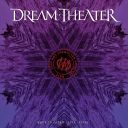
Seedów: 0
Komentarze: 0
Data dodania:
2025-07-27 15:28:18
Rozmiar: 520.48 MB
Peerów: 0
Dodał: Fallen_Angel
Opis
...SIŁA I PIĘKNO MUZYKI TKWIĄ W JEJ RÓŻNORODNOŚCI
Recorded Live at Birch Hill Night Club - Old Bridge, NJ on December 14th 1996. CD 1: 1. A Change Of Seasons, Pt. I 3:48 2. A Change Of Seasons, Pt. II 3:04 3. The Mirror 6:50 4. Lie 6:47 5. Burning My Soul 8:22 6. Another Hand / The Killing Hand 13:24 7. Just Let Me Breathe 5:16 8. Caught In A Web 6:19 9. Peruvian Skies 6:39 10. Pull Me Under 7:21 CD 2: 1. Lines In The Sand 14:13 2. Take Away The Pain 6:50 3. A Change Of Seasons, Pt. IV 4:46 4. Ytse Jam 6:10 5. Learning To Live 11:42 6. A Change Of Seasons, Pt. VII 3:12 7. Metropolis 12:33 Vocals - James LaBrie, John Petrucci, Mike Portnoy Guitar - John Petrucci Keyboards - Derek Sherinian Bass - John Myung Drums - Mike Portnoy https://www.youtube.com/watch?v=z25nGjaQrzs SEED 15:00-22:00. POLECAM!!! 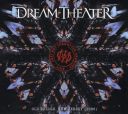
Seedów: 0
Komentarze: 0
Data dodania:
2025-07-16 15:34:38
Rozmiar: 296.58 MB
Peerów: 0
Dodał: Fallen_Angel
Opis
...SIŁA I PIĘKNO MUZYKI TKWIĄ W JEJ RÓŻNORODNOŚCI
..::TRACK-LIST::.. Recorded Live at Birch Hill Night Club - Old Bridge, NJ on December 14th 1996. CD 1: 1. A Change Of Seasons, Pt. I 3:48 2. A Change Of Seasons, Pt. II 3:04 3. The Mirror 6:50 4. Lie 6:47 5. Burning My Soul 8:22 6. Another Hand / The Killing Hand 13:24 7. Just Let Me Breathe 5:16 8. Caught In A Web 6:19 9. Peruvian Skies 6:39 10. Pull Me Under 7:21 CD 2: 1. Lines In The Sand 14:13 2. Take Away The Pain 6:50 3. A Change Of Seasons, Pt. IV 4:46 4. Ytse Jam 6:10 5. Learning To Live 11:42 6. A Change Of Seasons, Pt. VII 3:12 7. Metropolis 12:33 ..::OBSADA::.. Vocals - James LaBrie, John Petrucci, Mike Portnoy Guitar - John Petrucci Keyboards - Derek Sherinian Bass - John Myung Drums - Mike Portnoy https://www.youtube.com/watch?v=z25nGjaQrzs SEED 15:00-22:00. POLECAM!!! 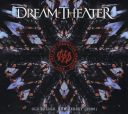
Seedów: 0
Komentarze: 0
Data dodania:
2025-07-16 15:30:20
Rozmiar: 875.20 MB
Peerów: 0
Dodał: Fallen_Angel
Opis
...SIŁA I PIĘKNO MUZYKI TKWIĄ W JEJ RÓŻNORODNOŚCI
To wydawnictwo to prawdziwy Święty Graal!!! Ta płyta jest po prostu rozwalająca! FA ..::TRACK-LIST::.. 1. Prisoner (Of Your Own Soul) 2. Nightmares 3. No Faith For The Liar 4. As Darkness Reigns 5. Paradise (On The Edge Of The World) 6. Knights Of The Round Table 7. The Watcher 8. Prodigy 9. In The End ..::OBSADA::.. Bass - Kevin Reid Drums - Brent Smedley Guitar - Kent Smedley Vocals - William Wren https://www.youtube.com/watch?v=_wtk26mU_KY SEED 15:00-22:00. POLECAM!!! 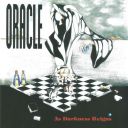
Seedów: 0
Komentarze: 0
Data dodania:
2025-07-11 12:20:58
Rozmiar: 142.92 MB
Peerów: 0
Dodał: Fallen_Angel
Opis
...SIŁA I PIĘKNO MUZYKI TKWIĄ W JEJ RÓŻNORODNOŚCI
To wydawnictwo to prawdziwy Święty Graal!!! Ta płyta jest po prostu rozwalająca! FA ..::TRACK-LIST::.. 1. Prisoner (Of Your Own Soul) 2. Nightmares 3. No Faith For The Liar 4. As Darkness Reigns 5. Paradise (On The Edge Of The World) 6. Knights Of The Round Table 7. The Watcher 8. Prodigy 9. In The End ..::OBSADA::.. Bass - Kevin Reid Drums - Brent Smedley Guitar - Kent Smedley Vocals - William Wren https://www.youtube.com/watch?v=_wtk26mU_KY SEED 15:00-22:00. POLECAM!!! 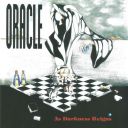
Seedów: 0
Komentarze: 0
Data dodania:
2025-07-11 12:16:58
Rozmiar: 484.96 MB
Peerów: 0
Dodał: Fallen_Angel
Opis
...SIŁA I PIĘKNO MUZYKI TKWIĄ W JEJ RÓŻNORODNOŚCI
..::OPIS::.. Kolejna część serii 'Lost Not Forgotten Archives', która zawiera niewydany wcześniej materiał. 'Live at Wacken 2015' to zapis jednego z występów w Niemczech podczas letniej trasy koncertowej Dream Theater, kiedy świętowali 30-lecie istnienia. A brand-new, unreleased addition to Dream Theater’s extensive ‘Lost Not Forgotten Archives’ project, ‘Live at Wacken (2015) sees the band playing the world-famous German festival during their Summer European tour where they celebrated their 30th anniversary as a band. ..::TRACK-LIST::.. 1. Afterlife 05:35 2. Metropolis, Pt. I: The Miracle And The Sleeper 10:17 3. Burning My Soul 05:42 4. The Spirit Carries On 07:44 5. As I Am 07:38 6. Panic Attack 07:39 7. Constant Motion 07:04 8. Bridges In The Sky 09:43 ..::OBSADA::.. James LaBrie - Vocals John Petrucci - Guitar Jordan Rudess - Keyboards John Myung - Bass Mike Mangini - Drums https://www.youtube.com/watch?v=B0fPY9PPB2E SEED 15:00-22:00. POLECAM!!! 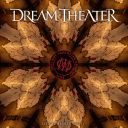
Seedów: 0
Komentarze: 0
Data dodania:
2025-07-06 14:37:42
Rozmiar: 142.72 MB
Peerów: 0
Dodał: Fallen_Angel
|
|||||||||||||
Żaden z plików nie znajduje się na serwerze. Torrenty są własnością użytkowników. Administrator serwisu nie może ponieść konsekwencji za to co użytkownicy wstawiają, lub za to co czynią na stronie. Nie możesz używać tego serwisu do rozpowszechniania lub ściągania materiałów do których nie masz odpowiednich praw lub licencji. Użytkownicy odpowiedzialni są za przestrzeganie tych zasad.
Copyright © 2026 Best-Torrents.com
Copyright © 2026 Best-Torrents.com